
WENDY WHITAKER LARGE TOP 5 TIPS FOR SCALING YOUR HMO PORTFOLIO



WENDY WHITAKER LARGE TOP 5 TIPS FOR SCALING YOUR HMO PORTFOLIO

EMILY SMITH – A GUIDE TO ANGEL INVESTMENT
MITCH NUNN – AN EX-LOCKSMITH’S TOP FIVE TIPS FOR GROWING YOUR PROPERTY PORTFOLIO TO EIGHT FIGURES OR MORE
SAVOYS PROPERTIES – HOW TO DEVELOP A GROWTH MINDSET IN 2024


Turning Pennies Into Properties
From starting his journey in a foreign country with £300 to his name to building a multi-million-pound portfolio of businesses and property, Dawid wears his heart on his sleeve in this article, showing you how you can achieve unimaginable success, regardless of your background.

P.27
Britain’s Got Talent Winner, Richard Jones, Shares His Magic Tricks on Increasing Productivity, Ignoring Negative People and Achieving ANY Property Goal
Britain’s Got Talent Winner, Richard Jones, shares his secrets on achieving any goal you set your mind to. The same secrets that took him from full-time in the army to touring the UK and performing in front of the Royal Family.
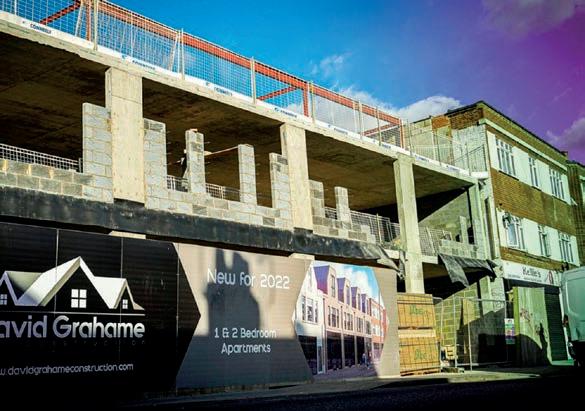
P.37
The Ladywell Project
Ladywell was a challenging project that took place in the heart of the pandemic. The team at P4HB share their story of how they helped to deliver the development on time and below budget.

An Ex-Lock Smith’s Top Five Tips for Growing Your Property Portfolio to Eight Figures or More
Starting as a locksmith, Mitch soon transformed his life and built an eight-figure property portfolio. In this article, he shares both his story and the strategies and tactics he used to build a large, profitable property portfolio.
P.5
The Market Pulse
Stay ahead with the latest market updates and industry news.
P.6
How to Use Data to Get the REAL Value of Your Next Property Deal
John shares how you can use data to gain real insights into potential investments, so you can analyse future growth and current demand with accuracy.
P.11
Blind Date
Richard dives into how you can find the right tradespeople, and save money on your refurbishments while you’re at it.
P.12
The Barwood Story
Steve shares Barwood Capital’s revolutionary system of funding developers projects and spreading risk on his client’s invested capital.
P.15
Nailing your Pitch
Using his vast experience in the finance industry, Nigel shares his top 5 tips on ‘wowing’ lenders when applying for property loans.
P.16
Movers’ Advantage
Suzi and Ian, founders of The Commercial Property Conference, share their insights into the most recent changes to Permitted Development Rights, and the potential changes that are likely to appear in the near future.
P.23
How the 2024 Budget affects Blue Bricks readers
Discover how the latest Budget affects you, as a property investor, with insights from Jerome from TaxAntics Accountants.
P.24
How to Develop a Growth Mindset in 2024
The team at Savoys share their top tips for developing a powerful mindset that will allow you to overcome any obstacle, and live the life of your dreams.
P.30
How Wendy Whitaker Large Secured a Huge Legislative Win for HMO Landlords and Her Top 5 Tips for Scaling Your HMO Portfolio
Wendy’s article is a must-read for any budding or established HMO investor. In this article, you will see Wendy’s top tips on how you can systemise your HMO portfolio, make it less time-intensive and more profitable.
P.32
Insurance, it’s only needed when you REALLY need it
Tina shares what insurance is required as a property sourcer, and what due diligence investors need to do to ensure a sourcer has this insurance in place.
P.35
A Guide to Angel Investment
Covering everything from finding investors to checking their information in line with FCA Regulations, this is a vital read for anyone interested in the subject of raising finance.

Spring is upon us and summer is around the corner. I hope that bright days are on the horizon for you, both literally (because who enjoys dark nights?) and metaphorically.
There have been so many changes at Blue Bricks HQ that I’m going to struggle to fit them in my little section here in the magazine. So, I’ll keep to the salient points and give you the main stuff before diving into what’s in this issue of Blue Bricks Magazine.
Yes, fear not, the right magazine did come through the door. We’ve had a bit of a facelift, so I hope you love the new brand as much as I do.
Our new brand symbolises what we are today, and where we want to be tomorrow. Modern, reliable, leading the market and your go-to hub for all things property.
I welcome your thoughts on the new brand, so feel free to email me and let me know what you think!
We are relaunching and revamping the Blue Bricks Property Podcast, and we already have some exciting guests lined up. This should be rolling out in the next month, but to be one of the first to know when our upgraded podcast launches, email hi@bluebricksmagazine.com and request to be added to the list for future updates.
Now that the newsy bits are out of the way, let’s focus on the issue at hand: Issue 27 of Blue Bricks Magazine.
This issue is special for numerous reasons. But I think what makes it stand out to me is how much practical advice is contained within these pages.
Suzi Carter and Ian Walmsley outline everything you need to know about recent and upcoming changes to permitted development. Honestly, if you read this article, prepare for what’s coming and apply it to your business, you’ll be strides ahead of the competition.
Britain’s Got Talent winner, Richard Jones, shares a detailed roadmap on how you can achieve any property goal you set your mind to, which is complimented beautifully by Savoys article on mindset.
Wendy Whitaker Large’s article is a must-read for anyone with an HMO portfolio. The tips she shares could revolutionise your systems, solve headaches and create an easier (and more profitable) life for you.
And that’s all without mentioning our main feature, Dawid Dowbusz Inspiring isn’t a strong enough word for Dawid’s article. After reading it, you’ll be ready to take on the world, and you’ll be armed with a few golden bullets on all things property and business.
Without further ado, I leave you to enjoy this issue of Blue Bricks Magazine An issue that will both inspire and enlighten you whilst giving some useful tips on growing your property portfolio.
As ever, I would love to hear your thoughts on this issue, and I invite you to get in touch by emailing me directly at sam@bluebricksmagazine.com







Dawid Dowbusz
Dawid is a property investor, entrepreneur and multi-business owner. He came to England in 2012 with £300 to his name and has since built a multi-million-pound property portfolio in and around Sheffield.
Emily started her property investment career ‘properly’ in 2018, but has been a landlord since 2009. Since starting, Emily has built up her portfolio, focusing on BTLs, flips, sourcing, assisted sales and serviced accommodation, alongside raising a young family.
Ian is an experienced entrepreneur and planning consultant. In 2017, Ian set up the site ‘Planning Geek‘ as a way to inform others as to the possibilities of using permitted development rights on both domestic and commercial property.
Nigel has been in the finance industry since joining Midland Bank over 40 years ago. Founder of Oxygen Business Finance, he is all about the conversation to fully understand the issues at hand and use all his experience to find a finance solution that works.
Malkit Purewal and Sanjay Kumar are multi-awardwinning developers from Savoys Properties who have been in the industry for 20 years. They specialise in HMOs/conversions and have won awards in three categories at the Property Investor Awards 2020 and 2021.
Jerome Lane
With over fifteen years of experience as a tax professional in a mixture of boutique tax practices and top 50 accountancy firms, Jerome established TaxAntics in 2019 to focus on working directly with property investors and developers.
John is a property insights expert, renowned for his forecasts and use of data to assist the industry in better understanding future market trends. He has co-created the property technology and data portal, Ultimate Property Dashboard, and supports businesses directly through Flex Property Education
Wendy is a high-end HMO investor, two-times author, public speaker and mentor. Alongside being known as an experienced investor, Wendy is also positively recognised for her involvement in making HMOs single-banded for council tax.
Mitch is a full-time property investor and developer based in Essex. Since he started investing over twelve years ago, he’s built an eight-figure property portfolio. He is now focused on providing high-end HMO accommodation with his co-living brand, Spaces
Suzi is an experienced commercial property investor and trainer based in the UK, alongside being the Founder of the Commercial Property Academy and The Board. Suzi recently launched the Commercial Property Conference with Ian Walmsley, which will become an annual event for UK property investors.
Finbarr is a serial entrepreneur and visionary. With his business partner James Allen, he co-founded P4HB and Daylight, and plans to launch three new businesses in 2024. Finbarr’s leadership is marked by a commitment to innovation, quality and sustainability, driving the companies he leads to industry forefronts.
Tina developed a passion for law during her time as a police officer. So, when she moved into property sourcing, she was surprised at how unregulated the sector was. Tina has since made it her mission to raise standards for property sourcers and protect property investors from rogue agents.
Lance Corporal Richard Jones is the only Magician to ever win Britain’s Got Talent! A world-class celebrity magician who can be seen entertaining at corporate events, royal parties and in theatres regularly all around the world.
Richard is a builder/developer and Chartered Construction Manager with 30+ years of experience in construction. As well as successfully mentoring employees, Richard also works with other business owners to help them maximise their profits and regain time.
Steve started his career in banking, as a graduate trainee with NatWest, followed by Hill Samuel and Lloyds. He joined Barwood Developments in 2000, as Finance Director, primarily to source funding for the business. Steve is now a Board Director and Head of Residential, for Barwood Capital, known as Barwood








At last, the property market is beginning to pick up. At least that’s according to a recent survey published by the Royal Institution of Chartered Surveyors (RICS).
Prices are expected to rise, despite more property coming on to the market for sale. Around 36% of estate agents expect to see a rise in property values this year. And this is true for the UK as a whole, not just popular selling spots.
At the same time, there was an increase in new instructions to sell in February. The figure rose to 21 – the highest in almost two years. The average number of assets on estate agents’ books is now sitting at around 42. That’s the highest number of properties for sale in 12 months.
Much of the ‘new shoots’ feeling, has been down to a fall in mortgage interest rates since summer last year. The average mortgage rate today is sitting at 5.25%. At the same time, inflation is slowly coming down.
Some property analysts are convinced that the recent fall in employment rates could prompt the Bank of England to cut interest rates in the near future, resulting in better mortgage deals for buyers, to the extent that the benchmark could be 4.5%, by December this year.
And it couldn’t come at a better time. The Bank of England pointed out mortgage arrears in the UK are the highest they have been in seven years. The figure jumped from 1.12% in the third quarter, to 1.23% from October to December last year. That’s the highest it’s been since October to December 2016, when arrears stood at 1.24%. That in itself was still well below the peak for mortgage arrears when they sat at 3.64%, during the January to March 2009.
The optimism surrounding price increases for sales, hasn’t extended to rental income, with fewer surveyors expecting to see a rise a rental price over the next few months. Again, this was according to a RICS index tracking survey. Both tenant demand and landlord instructions are also down. That’s good news for tenants who can look forward to a levelling of rental prices in the coming 12 months. The same can’t be said for landlords, with only 7% signing up for a buy to let mortgage in the last quarter of 2023 – that’s almost 5% down from the previous year.
MUCH OF THE ‘NEW SHOOTS’ FEELING, HAS BEEN DOWN TO A FALL IN MORTGAGE INTEREST RATES SINCE SUMMER LAST YEAR
Landlords will also be on the receiving end of bigger council tax payments, if their empty properties are left standing unoccupied for more than one year. A new government directive, to be introduced on April 1st, means local authorities will be able to halve the current ‘grace period’ of two years. Exemptions apply only to homes which have been inherited, are being extensively refurbished or can’t be let out year-round due to planning rules.

Meanwhile, the cut in capital gains tax in the recent budget (from 28% to 24%) is expected to result in more landlords selling properties, resulting in fewer available rental properties. This is in line with the government’s intention to free up more housing for sale.
Another survey, this time by property portal Zoopla and, based on Land Registry figures, showed that homeowners in the UK moved home after around nine years. And in doing so, they made anything from £30,000 (northeast) to £137,000 (London) in profit, depending on where they were located.
But it wasn’t all celebrations for homeowners. Some – especially those who sold in 2023 – made a loss (7% of sellers).
The most recent Halifax survey reports a rise in house price values for the fifth month in a row. It’s also a 1.7% rise, year on year, bringing the average house price in the UK to £291,699. That’s just £1800 less than last June’s peak.
The UK property market and indeed, the industry, seems to be missing the ability to spot an up-and-coming area. For years, I’ve heard so-called experts tell investors to look for signs of growth, yet then go on to offer some truly bizarre ways of spotting it. Counting cranes, buying next to train stations, checking how much planning activity is being approved, driving and getting a feel for it and the most ridiculous of all, asking a salesperson if you should buy!
Let me ask you a question. Would you buy stock in the stock market without some decent data and insights? Would you drive to the factories of a stock interesting you and look around to see if you think it is busy? Would you risk it? Would you invest £100,000s of your or someone else’s money? Of course not.
And it’s not just investors. The way we work out property values is, in many instances, a human’s guess, with a couple of nearby properties used as a benchmark.
2010s and also led to the creation of the first real-time database of new measures, for the whole UK.
I was then able to get immediate, street-level values for properties and model how much they were likely to move in price. Seeing the power of this technology, I began creating software to visualise this for anyone in the industry and partnered with an artificial intelligence (AI) expert to add automated searches, in these high demand areas. Since launching, well over 1,500 investors have used this to find and automatically shortlist, high-demand, highgrowth property.
 John Penquet
John Penquet
We look at data for sales, based on mortgage approvals. This shows us where the market was, not where it is, since the offer was most likely agreed months before this data is published.
Land Registry data is often used but is not granular enough, not even showing different numbers of bedrooms in properties, a critical piece of information.
Over the past decade, I have worked to establish and understand the triggers for market growth at a local level. This work enabled my clients and I to out-perform the more general market throughout the

But how does this work? Well, it’s all available to you if you want to start. Here’s how in three steps and how you can use data to analyse your next property purchase, with or without the platform.
Demand is measurable in property, but it is difficult without the right tools. You need to:
Split properties out by size (bedrooms) and type.
Segregate by area, ideally postcode area.
Measure the listings available and what % of stock goes under offer. The UK average is 10%, and at the time of writing, in many areas its over 40%. Wouldn’t you want to invest in these areas?
The movement of the market is much easier to measure but requires people to gather very large quantities of data for a long time. The data is current market asking prices. With this data you can very accurately measure movement in price, in near real time. Again, you need to:

Split properties out by size (bedrooms) and type.
Segregate by area, ideally postcode area.
Gather the average asking price for every listing and deduplicate them.
Compare the historic prices in this data and see how much the property type and location are rising or falling.
Compare with other areas. At the time of writing right now, areas are rising by over 15%. Aren’t these areas we should focus on?
They’re everywhere in the UK, so wherever you’re based, you won’t be far from a high-growth potential location.
The range of pricing in an area can give clearer indication of potential growth. In statistical speak, the inter-quartile range is the important data here. It tells us the range of prices for most properties, removing the outliers. Those areas with wide range, tend to see more potential for growth, when combined with the previous measures.
To do this is extremely complex, so in order to understand this you’d need to use advanced software and data collection, similar to the previous point.
Remember that once this is done, you can then deploy your strategies, skills and experience to capitalise on the growth potential of areas and property types. It’s great for more advanced strategy too, such as houses in multiple occupation (HMO) creation, commercial to residential and title splitting.
THE RANGE OF PRICING IN AN AREA CAN GIVE CLEARER INDICATION OF POTENTIAL GROWTH

Example of range of prices listed for sale and the price range for the majority of properties
You can access the reports and all of the data I have discussed in this article, by trying out the Ultimate Property Dashboard here: upd.ai or by scanning this QR code:
For a limited time, you can get 50% off using these links.
You can also check out how this research can drive your business forward, by joining me at one of my regular, free, Flex training webinars here: bit.ly/flexsessions or by scanning this QR code:




Having left school aged 16, with only a handful of GCSEs and starting my first full-time job as a trainee Locksmith, never did I think my entrepreneurial journey would take me in the direction of property and that I would have an £11m property portfolio (and growing) some 20 years later. This portfolio consists of 32 single buy-to-lets (BTLs) in Warrington, which are a mix of houses and apartments, six houses in multiple occupation (HMOs) in Southend, Essex, with a room count of 50. I have a block of flats in Westcliff, Essex, which I’m hoping to convert into a large 12-bed HMO and a land development, worth £1.65m, in addition to my residential home. I own 50 properties but collect around 90 individual rents per month.
It’s crazy to think what’s achievable when you’re consistent in your actions over a sustained period, essentially the principle behind, The Compound Effect by Darren Hardy, one of my favourite books of all time.
In this article, I’m going to share my journey, how I scaled a £12m portfolio from nothing but bad debt and my five essential tips to grow your property portfolio to eight figures or more.
I’m Mitch Nunn, a south-east based property investor and developer, with over 12 years’ experience; on a mission to provide 100 high-end, co-living bedrooms, in my hometown of Southend, Essex.
I became an accidental landlord when I bought my family home from my Mum, back in 2011, coming out of the great financial crisis. At the time, I was looking for an apartment to buy, but mum had seen a property she liked and wanted to sell the family home. Given I was already living there, I guess it made sense for me to push myself to buy the property I had lived in for 33 years, although, at £205,000 it was clearly out of budget!
I bought the house, which was a 3-bed semi and I soon realised that I had probably overstretched myself! I’d paid mum £40 per-week housekeeping, up until this point and now, following the purchase, I was responsible for the mortgage and all the bills! Ouch!
When it became evident that my living standards were going to nosedive as my disposable income dried up at best and at worst, potentially have the house repossessed, I had to act, so I rented out two of the other bedrooms in the house, at a rent of £1k collectively, per-month. This was enough to cover the mortgage and bills, which essentially meant I was living for free! This was an epiphany moment for me and ever since, I have been hooked on property and building passive income via assets.
That led to a flurry of activity in property, as and when funds became available, to make additional purchases. I bought my first BTL property, which was an apartment in Portsmouth, in 2012, and I bought a total of 18 properties between then and 2016.
I managed to accumulate so many properties in such a small window of time because I made a contact with a developer, where I was buying off plan, while using creative financing methods to buy the properties, using very little money. As I was agreeing such large discounts prior to completion, it allowed me to get creative.
My advice, if you’re looking to grow your portfolio, would be to leverage capital. If you’re working within the limitations of the money you can generate from working and saving, it will take a lifetime to build a sizeable portfolio, it really comes down to raising capital to leverage your growth and structuring your finance in a way that allows you to continually grow.
I’m not one to promote a single property strategy, as I think understanding multiple strategies will always present more opportunity than having a single focus. That said, I have found myself solidifying two strategies that I now operate.
Since 2020, I’ve been investing in the northwest, specifically Warrington, where I have accumulated 32 properties to date. My strategy is simple, buy purely for yield with minimal work required to
the properties. Not the sexiest of strategies I know, but my thought process is such that if I continually buy, remaining consistent over the long term and with the capital appreciation expected in the northwest over the coming decades, I should do well….
Before interest rates started rising in 2024, the target was to acquire properties with a 9-10% gross yield, when bought with a 75% loan to value (LTV) mortgage, at circa 3%. I was achieving 20% return on investment (ROI) after all costs, plus expected capital appreciation. The properties, which were a selection of houses and flats, needed minimal work, at most a lick of paint and a deep clean!
Acquiring individual properties has proven time consuming when it comes to the conveyancing process, so now I opt for a multi-property acquisition strategy, acquiring via auctions or off-market distressed portfolios, essentially folding in multiple properties in a single transaction.
I’ve now built a build team around our developments to allow us to scale up in quantity and size, this gives us a competitive advantage locally, as we can develop at cost, manage our material costs and also manage our works schedule, to ensure we remain as efficient as possible across multiple projects. And because all our sites are within 20 minutes from our doorstep, logistically it’s manageable.
I couldn’t think of anything worse than undertaking a development in Warrington, for example and having to drive four hours, to simply ‘stick my head in the door’ to see how things are progressing.
BE COMFORTABLE WITH DEBT, REMEMBER THERE’S GOOD DEBT AND BAD DEBT, UNDERSTANDING THE DIFFERENCE IS KEY
Living in the southeast, where gross rents are circa 5%, this strategy isn’t viable, which leads me on to my second strategy.
In the southeast, I focus on developing properties to create equity, developing and retaining. To date, we have carried out many developments, from houses to two-flat conversions, commercial to residential conversions and sui generis HMO projects. I’m even about to start my first ground-up, new-build scheme of two stylish chalet bungalows, with a gross development value (GDV) of £1.65m, in the coming weeks….
Given the high interest rate environment we find ourselves in and the fact we are still intent on building our portfolio income, HMOs are currently our focus. There’s really no strategy that even comes close when considering building income through property.
I’ve set a target to achieve 100 HMO bedrooms locally, with an average room rent of £800-£850 per month, a £1m annual rent roll is achievable. With our current and future pipeline, we should achieve our room count late 2025, early 2026.
I often get asked if I would venture out of our local area for developments and the simple answer is, “No!” Developments take a lot of time and effort, and even with a hands-off approach to managing developments, you still find yourself being hands on. Well, I certainly do!

I would put my success down to my ability to take consistent action. People believe property is a ‘get rich quick’ scheme, but it’s not. It’s a ‘get rich for sure’ scheme, but it’s definitely not quick! Like most things, it takes time. It needs time for the power of compounding to take effect. There’s a reason why world-renowned investor and previously the world’s richest man, Warren Buffet, supposedly accumulated over 97% of his $84b net wealth, after his 65th birthday!
Buying property is capital intensive. With deposits, legal fees and stamp duty all taking their toll when purchasing, no matter how big your pot of capital, buying property will bleed it dry. So, to stretch your available capital as far as possible, you need to create additional value through development, increase the property value, refinance at the new higher valuation and recycle as much capital as possible. This will allow you to do multiple projects with the same available capital.
Personally, I opt for interest only mortgages and use the additional cashflow towards property purchases. Over time as property prices increase your debt-to-equity ratio (LTV) will reduce. From here, you have several options, what you decide will be specific to you, your goals and your risk profile. You could sit tight and let inflation erode the debt in real terms, or you could refinance the portfolio, release equity, which would give you capital to reinvest and compound the gains! You could take the portfolio debt as far as 75% LTV, but to be on the safe side, I always like to maintain a 65:35 debt to equity ratio as a maximum, this ensures that even if there’s a downturn in the property market, you’ll likely still have ‘skin in the game’ and shouldn’t raise concerns to your lenders.

The idea is to build a portfolio to critical mass, whereby the portfolio itself can sustain additional property purchases through the cashflow generated, without the need for raising additional capital.
Scaling to an eight-figure property portfolio requires leverage in many forms – capital, labour and your network! You’re going to need to raise capital to achieve your goals, be comfortable with debt, remember there’s good debt and bad debt, understanding the difference is key. When you bring value professionally, naturally you’ll start to build out your network, this will in-turn make your more resourceful, which will be required to scale. This may come in the form of a connection, capital or other. Document your journey and tell people what you do! When it comes to raising capital and building those beneficial relationships, building trust is essential and an online profile is key to this.
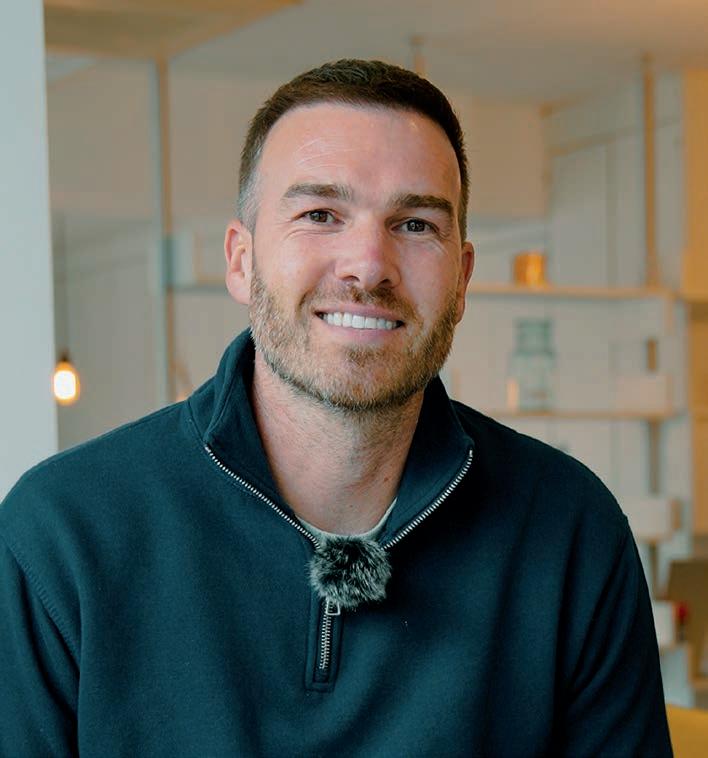
Leverage the banks’ money! When buying an investment property like a BTL, a 75% LTV mortgage is essentially when you buy a property with a 25% deposit, i.e., you put in £1 and the bank puts in £3. But the magic happens because you control the asset and as the property price increases you benefit wholly. For example, if you bought a £100k property with a £25k deposit, the property goes up in value, say by 10% (£110k) because you benefit from the capital appreciation of £10k, which against your deposit is a ROI of 40%, as opposed to just a 10% ROI if purchased with cash without bank leverage! Now think of that on wide scale across a multi-million-pound portfolio, over multiple decades! Yep, exciting. Right?
When scaling an eight-figure portfolio, it’s imperative to delegate the day-to-day management. Think more like the investor as opposed to the landlord. Delegate and elevate! Build a team and switch off the phone.
One thing I can promise you is, if you’re taking calls and dealing with the day-today issues that come with a large property portfolio, like leaking washing machines and non-payment of rents, you’ll simply buckle and it will impede your growth. Beyond the point of purchasing or developing a property, you should have as little involvement as possible.
Simply put, small, consistent actions, for a sustained period of time, to reap huge rewards. You can apply this to many areas of your life, but no more so than when it comes to property investing and building wealth. As mentioned previously, property is not a ‘get rich quick’ scheme and it’s programmed due to asset price inflation and the debasement of currency.
Warren Buffet said that his life is, “merely a product of compound interest.” With this in mind, investing sooner rather than later and allocating as much capital to investing early on, has an exponentially positive outcome. Start today, and good luck! mitchnunn mitchnunnproperty.co.uk youtube.com/channel/UCtjF-rtiN3TD7LxWaJydxaA

Most investors treat finding a tradesperson like Cilla Black’s Blind Date. They meet someone in a tracksuit at the local pub, ask three questions and that’s it, they’re hired to complete a refurb, worth tens of thousands of pounds.
Typically, these three questions are:
“Have you got a pulse?”
“Can you do the job?” and
“How soon can you start?”
Jokes aside, randomly picking your tradesperson from a pinboard in a takeaway, a membership website, a social media forum, or worse, at the local on a Friday night, is dangerous. Not just because of the damage they can do to the job, the fact they’ll likely overrun on the project and cost you a tonne of money, but because it endangers lives. If someone botches a refurb, they risk their own life and the lives of others, while risking landing you, the client, in jail!
Here’s how to go from a ‘blind date’ to a pre-vetted wedding proposal, by finding the right trades who will save you money, do a fantastic job of your refurb and keep you out of the slammer. Whether you’re investing in rent-to-rent or building houses from the ground up, this article is for you.
Mindset: It’s All Positive Until You Get on Site
I’m a huge fan of a strong mindset and I love the whole, ‘start now, get perfect later,’ ideology for personal development, but it should be banned on building sites. ‘Getting perfect later,’ is a way of getting someone killed on a refurb project. Yes, it’s appealing to get the person who can start as soon as possible, because time is money, but it will almost always cost you in the long run. In a time when builders have never been busier, why can they start immediately?
The questions you need to ask run deeper than knowing how much your refurb will cost. You need to do proper pre-qualification. That includes checking people’s integrity and values, as well as their policies and procedures. You need to work with people who care about you as a customer and who care about doing the job right.
This isn’t just a ‘nice to have’. It’s your legal obligation under the Construction (Design and Management) Regulations 2015 (CDM) to pre-qualify tradespeople, before employing them, if they are working on a commercial site. For reference, a buy-to-let, or any investment that is not your residential home, is seen as a commercial site in the eyes of the law.

If you’re new to refurbishments or builds, then it comes down to Donald Rumsfeld’s, The Unknown Unknowns. You don’t know what you don’t know, so you can’t be blamed for not asking the right questions.
Questions I recommend asking would include:
“How long have you been in business?”
“Can I have ten references from previous clients?”
“Have you completed a project like this before?”
“Can I see your insurance and any professional qualifications?”
It might feel awkward asking these questions, but if the person you’re asking gets funny about it, you need to ask yourself why. Any professional worth their salt, will happily answer these questions and they’ll be expecting you to ask them!
Converting a property into a house of multiple occupation (HMO) is a whole different project from a standard buy-to-let refurbishment and requires far greater levels of compliance. A general builder won’t know this detail, risking your project, the safety of people on site, and your cash!
I’ve seen investors get the bloke who did their extension, to work on their commercial conversion. The result was as you would expect.
If you don’t know what your legal obligations are as a site owner, then there are some free resources available to you online. Firstly, I run a free full-day summit to show investors the ropes. If you’d like to join, then contact me using the details at the bottom of this article.
Secondly, you can download a prequel questionnaire from the Health and Safety Executive (HSE) website. This website also has the House 91 Procurement Guide and a Guide to CDM.
Many of the property courses won’t teach you this information, but it’s vital you know it, no matter how many years of experience you have in the industry.
I covered this in the November-December issue of Blue Bricks, but you can basically break CDM regulations down into ‘S.K.A.T.E.’ You need to be able to demonstrate to the HSE that the team working on your site have the skills, attitude, training and expertise to be carrying out the job at hand.
If you want to find decent tradespeople, then I’d recommend professional bodies like The Guild of Master Craftsmen and The Federation of Master Builders. Trades on these sites tend to have some motivation to do things properly. On your more popular membership platforms, anyone with a credit card and a hammer can join and experience levels don’t even get considered.
My biggest advice for cutting costs on your refurbs sounds counterintuitive: Spend more money at the start.
Make sure you spend the money to get a full set of proper plans drawn up by someone qualified, that you can pass to your builder. This will save you time, money and sanity. Most importantly, hire a principal designer, to take the lead and manage the project. Under the new Buildings Safety Act, you legally need a principal designer to sign off on any project that involves one or more contractors.
Ultimately, this all keeps your costs down, as you get a better quality of tradespeople, who are going to charge the right price, complete your project on time and not get somebody seriously injured in the process!
Istarted my career in banking, as a graduate trainee with NatWest, followed by Hill Samuel and Lloyds. Twenty-five years later, having funded the original management buyout (MBO) I joined Barwood Developments in 2000, as finance director, primarily to source funding for the business.
Barwood Developments was a commercial property developer (now known as Tritax Symmetry and became a serious player in the Big Box sector of the real estate market). I am now a board director and head of residential, for Barwood Capital, Barwood Capital uses investor finance to fund multiple new-build commercial and residential development projects, essentially spreading our clients’ risk.
Over the years, we have created over £1 billion of value though UK Property , have £520m of assets under management and invested over £47 million of equity to create £250m GDV of residential property.
Throughout my career and together with the colleagues I have met on the way, there has always been one common goal; to make profit from property. And there are many ways in which to do that.
One of the obvious ways is to buy property directly. This is often a single residential property, like a buy-to-let, which you refurbish and either sell for profit, or keep as a rental for income. Some people will go onto build a portfolio of rental properties, dealing with tenants, councils and maintenance costs.
Others will ‘flip’ their property (do it up and sell it on for a profit) and immediately invest the proceeds into another renovation project.
Another way, is to invest in a single development, possibly having a share in the land cost and then a profit share with the developer at the end, when the properties sell. This can be both timely and costly and may include navigating the overly complicated and antiquated UK planning system, as well as subcontractors, estates agents, the list goes on.

During my time at Barwood, it became apparent that there is significant demand from SME housebuilders for equity for some excellent projects of between two and twentyfive homes. The number of SME developers has regrettably declined markedly over 30 years and now deliver far fewer homes, since the 1980s. This is a pity because they can contribute significantly to the national housing targets.
UNLIKE MANY OTHER FUNDERS, WE ARE PROPERTY PEOPLE AND BARWOOD SUCCESSFULLY INVESTS AND MANAGES COMMERCIAL INVESTMENTS AS WELL
One of the main problems for SME developers is the availability of equity. They were having to invest all of their available equity into a single scheme, source senior debt, build out the development and sell the homes, before being able to release their equity for the next project. This was seriously hampering their growth aspirations. We recognised this at Barwood, so set about creating an equity funding model for SME developers.
As you can see, many of these methods take time and energy. However, we found a different way. A way that helps small to medium-sized enterprise (SME) homebuilders at the same time.
Barwood had a pool of high net worth (HNW) investors, always keen for new investment opportunities and here we had a growing number of developments needing equity. And
so, in 2018, the Barwood Residential Investment Platform (BRIP) was formed.
We were able to bring together HNW investors, who wanted returns from property development without the hassle and SME developers, who wanted 100% equity, to enable them to realise their growth aspirations. We now create small funds regularly, typically £5 million at a time, to invest in four or more schemes to spread the risk.
BRIP is unique in that it only funds developers whose projects are built for sale and we work with three or four developers on their projects per fund, giving an investment risk spread of developer, geography and house type. In this way, a single investment of £100,000 is usually spread across forty homes, meaning an investor typically has £2,500 in each home. I believe that this risk mitigation is the key to investment success.
With the exception of central London, BRIP works across all of the UK and our typical location is what I like to call, “family homes in leafy lanes”; four – and five-bedroom homes with plenty of outside space, in sought after green-suburban or edge-of-village locations. We carefully select our projects, as we do our developers, both of which go through a stringent screening process and financial stress testing. The average sale price of the homes we fund is, £650,000 and the average buyer profile is a second homeowner, retiree or downsizer and/or with a mortgage loan to value is less than 50%.
A single investment is usually committed for around 30 months, however, as the projects in each fund complete and

 Steve Chambers
Steve Chambers
the homes sell, the proceeds are paid back to investors, so investors can start to see returns from month eighteen.
Unlike many other funders, we are property people and Barwood successfully invests and manages commercial investments as well, by way of its ‘Growth Fund’ series and separate mandates. We look to establish long-term relationships with our approved SME developers; indeed, one such developer has just started its tenth project funded by BRIP. We have over fifty approved developers and they like that we ‘talk their language’ when it comes to development. And sometimes, when things don’t go to plan, we have the expertise to assist and help get the project back on track. The banks like this too.
To date, we have raised ten funds totalling £47 million of equity. Of the three funds that have completed, we have delivered, on average, 1.33x equity multiple to investors, net of fees. We target a 1.3x equity multiple. We have 160 HNW investors at present and our repeat investor rate for BRIP, is over 65%. Barwood is FCA regulated and the registration process for investors is straightforward and unique. The documentation is signed once and this enables multiple, subsequent investments, by email alone. Once registered, there is no obligation to invest.
When you are looking for your next residential investment opportunity, why not consider a fund type investment, to spread your investment risk and let someone else do the hard work, while you reap the rewards?
NB. Past performance and historic data are quoted. This is no guarantee of future performance. Your capital is at risk.

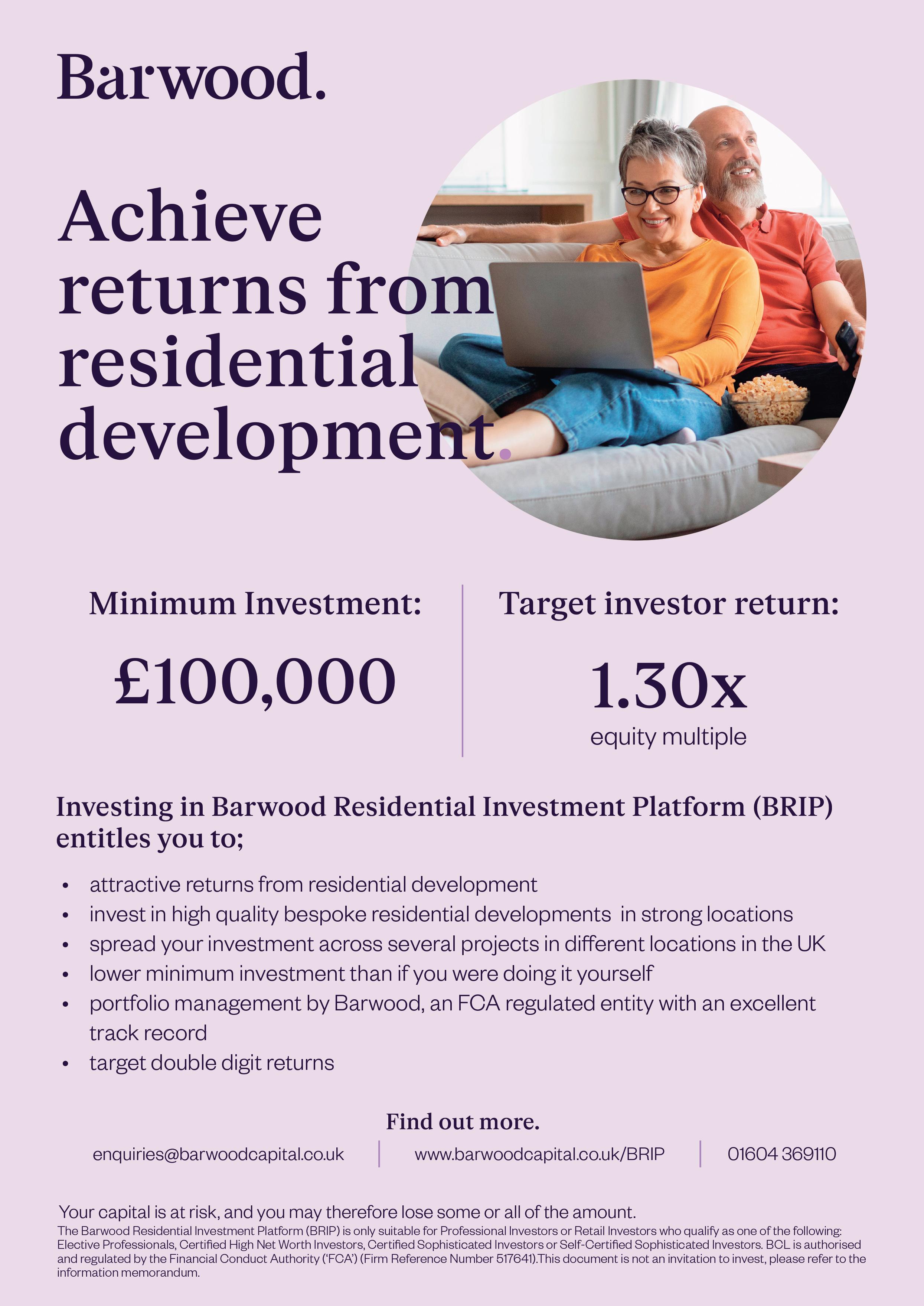
Ever wondered what lenders are really looking for when you’re pitching for a property loan? It’s not just about numbers and spreadsheets – it’s about presenting a compelling story that gives them confidence in you and your project. After years in the lending world, I’ve boiled it down to a simple mnemonic: PARSR. Get these five elements right, and you’re well on your way to that coveted, “Yes!”
At Oxygen Business Finance, we support developers of varying experience, including readers and past features of Blue Bricks Magazine. From straightforward buy-to-lets to large, complex ‘mega-deals’, we’ve seen it all. So, regardless of the size of your portfolio, experience in the industry or the purchase price of your deal, all of the following rules still apply.
You’re the star of the show, so make a great first impression. Lenders want to back people they can trust and believe in. Highlight your relevant experience and if there are gaps, explain how your kick-ass team fills them. Honesty is key – if there are skeletons in your closet (like a less-than-perfect credit report) put them out there early. Lenders hate surprises and being upfront shows integrity. Most issues can be addressed if you’re transparent.
Be specific about how much you need and why. Lenders like to ‘follow their money’, so give them a clear breakdown of costs. If it’s a refurb or development project, provide a detailed cost schedule – lenders are seasoned pros and will spot any fuzzy maths. Always include a contingency (at least 10%, but more for complex projects) – it’s better to come in under budget than go cap-in-hand for more funds.

This is the biggie – how will the lender get their money back and when? Lay out a clear exit strategy, like selling the property (back it up with solid comparables and realistic timelines) or refinancing (allow ample time and show evidence that it’s viable). And, have a ‘Plan B’ if your primary exit falls through – reducing the price, refinancing elsewhere, etc., Lenders want to see you’ve thought through all scenarios.
While not the top priority (that’s you!) lenders still need to know their investment is properly secured. Use their preferred valuer to avoid delays and factor in legal fees (plus VAT and disbursements) for both parties. If you’re borrowing through a company, most lenders will want personal
guarantees from directors or major shareholders – take this seriously, as you’re on the hook if things go south. Personal guarantee insurance can mitigate this risk.
Lenders are businesses too, so show you understand their need for a solid return on investment (ROI). The higher the perceived risk, the higher their charges – it’s just economics. Look at the whole package: interest (fixed or variable, simple or compound); fees (arrangement, admin, exit, etc.,) and any project-specific costs, like monitoring surveyor fees, drawdown fees, revaluations and non-utilisation fees. Getting this right, upfront, avoids nasty surprises later.
With a pitch that nails the PARSR elements, you’ll have lenders excited to back your next property venture. If you need help prepping, lean on your broker – they’ve got your back and can ensure you put your best foot forward. Now go get that money!
We understand both a lender’s and an investor’s perspectives, which puts us in the perfect position to help you secure better finance products for your deals.
If you have an opportunity in the pipeline that you’d like an experienced set of eyes to look at, or if you want to chat with me or my team in advance of a deal, to see how we can help you, then get in touch using the details below:


With the UK’s cries for housing getting increasingly louder and an election on the way, it makes sense that the government is updating use classes, to make the conversion of commercial units easier than ever before.
Although we are still a long way from where we need to be as a country, if we are ever going to supply the housing that our populace demands, recent ‘wins’ at a parliamentary level have made life easier for both the budding and experienced property developer. We will cover these ‘wins’ in this article. Wins that, if implemented, will put you ahead of the curve and allow you to potentially make a small fortune on upcoming development opportunities, that few people are aware of.
This is a joint article written by myself, Suzi Carter and my colleague, Ian Walmsley (more commonly known as the ‘Planning Geek’). Together, we’re running the Commercial Property Conference at the end of this year.
We both have decades of experience in the property industry. I’ve worked in commercial real estate for almost 30 years as a chartered surveyor. Towards the end of my career, I was a director of Landsec, which at the time, was the UK’s number one property company by size. My role involved managing £2.75 billion worth of shopping centres across the UK, a role which I eventually left to go self-employed.
Since then, I’ve built a property portfolio worth circa £5 million and continue to teach and mentor others, in both business and commercial property.
Now you know that we’re more than qualified to give advice and information on all things planning, here are the most recent (and potentially upcoming) planning changes that you need to be aware of.
The arrival of Class MA, in 2020, brought a cheer from property developers across the country. Class MA meant that Class E properties (commercial units, like offices, shops, cafes and restaurants) could be converted into residential units, through prior approval. Prior approval means that the change has already been accepted in principle by the local authority, so it does not have to go through the planning process. It’s essentially a ‘tick box exercise’, where, if certain criteria are met, planning permission is automatically granted.

Ian is one of the most well-known planning consultants in the UK and is now actively recommended by planning authorities in England. Ian believes that one of the most important aspects of business is to be remembered, which is why you’ll spot his iconic red sunglasses at any event he speaks at and across his social media!
Alongside this, Ian is a property developer himself and has had a lifetime of experience in the industry, after inheriting a property development business, which was started by his grandfather almost 100 years ago!
This new use class has been successful, but it’s also had its limitations. Limitations that were partially removed on March the 5th of this year.
As of March 5th, the restrictions on the amount of space you can convert has been lifted. Previously, you were only allowed to convert up to 1,500 square meters of commercial space into residential property. However, this limitation has been removed, giving you an unrestricted area to work with.
The government have also removed the vacant possession requirement. Previously, a commercial building had to be vacant for three months or more before it could be converted. This is no longer the case and, for the first time, investors can look at commercial space that is occupied and has a year or more left on the tenancy.
Another positive change is that investors can now look at commercial buildings and apply for prior approval on them before they purchase and occupy the property. This reduces risk for developers and broadens their horizons to new deals.
The above changes are what have been confirmed for now. However, there is more to come. While not confirmed yet, the below changes are all but guaranteed to take place:
For example, there will come a time, we hope, when further restrictions are removed from Class MA, and it will be expanded to areas of outstanding natural beauty (AONBs) and potentially, national parks.
This would bring about a wealth of new opportunities that, without the removal of these restrictions, would not be possible to convert into residential homes.
There are also proposals in the works that would make the conversion of hotels into residential homes possible with prior approval. When this will come, we don’t know. But when the change does arrive, it’s going to be huge for developers.
The clock is ticking quickly on this government, so at some point soon, they need to flick the switch and make these changes happen. Ideally, sooner rather than later.
 Ian Walmsley
Ian Walmsley
But the next switch we expect to get flicked, will probably be on the agricultural side, which will be beneficial for both commercial and residential investors.
At present, agricultural buildings can be converted into up to five residential units. We expect this limit to increase to ten soon, potentially leading to the creation of small hamlets within agricultural areas. The Government is also considering increasing the ability to convert into a flexible commercial use up to 1,000 sq m.
Additionally, equestrian and forestry units have not been eligible for conversion into commercial or residential dwellings. However, we anticipate this rule to change alongside the adjustments outlined above.
Our government knows it’s drawing its last breath and it needs votes to stay in power. Yes, we can all say that it’s happening because England has a huge housing shortage. It’s true, we do need more housing. We’re not building or converting anywhere near enough. But there’s a reason why you always see an avalanche of changes happening, as an election looms.
Ultimately, the reason matters not. If you don’t act and take advantage of these opportunities, other people will.
The secret of any successful developer is that they always have multiple exit strategies for their projects.
We’re 95% sure that the changes outlined above are coming into play. You can get ahead of the curve by identifying buildings that would be suitable if these changes happened and purchasing them early. It’s movers’ advantage and we saw this when Class O arrived, allowing the conversion of offices into residential units.
Ultimately, regardless of the project or planned exit, you always need a minimum of a plan B and a plan C. You never know what’s going to happen. We never expected the pandemic and that serves as proof, that you always need a backup!
If you want to adopt commercial conversions as a strategy, especially targeting the new changes, then we recommend looking for buildings that work as commercial units, if you struggle to convert them into residential.
There’s always a development to be done and it does not have to be done tomorrow. Now you can apply for a change of use while tenants inhabit the building, you can keep commercial tenants in the property paying rent for a few years and wait till their lease expires, before completing the conversion. If the only way for you to make
money is for it to work as a residential deal, then you’re playing a risky game.
Another good example of a plan B is to look for hotels that would work well as aparthotels, if the prior approval to turn them into residential does not happen. This is an especially useful angle, with the inevitable restrictions that are coming to serviced accommodation (SA) units and short-term lets.
When these changes arrive, they’ll arrive on a national, government level across England. This means that local councils will have no choice but to adhere to them. It essentially means that converting certain buildings, goes from months of fighting planning officers to a ‘tick-box exercise’. You might need to hold the council’s hand in the early days, but that’s why you need a decent planning consultant.
The most profitable deals will be the first ones. The ones that happen before agents and vendors get wise to the changes and realise that their old commercial units, which were previously of no interest to developers, are now lucrative opportunities.
We welcome you to join us at our next Commercial Conversion Conference on the 18th/19th of October. You can discover more about the event, or any of our other work, by getting in touch using one of the websites below: planninggeek.co.uk suzicarter.com commercialconference.co.uk

• Free
• Ensure
property by up to 15%
quote

DAWID’S TALE OF GOING FROM UNEMPLOYED IN A NEW COUNTRY TO BEING A PROPERTY MILLIONAIRE
When I moved from Poland to England in 2012, I started my life from scratch with nothing. No job, no house and £300 in my pocket. My initial goal was to save money for my wedding, take our parents on their dream vacation, and open my dream business: A blueberry plantation.
The idea of owning a blueberry plantation was quickly supplanted by the realisation that achieving financial independence swiftly was critical for my well-being, particularly due to my dissatisfaction with my current job. I realised that to start my blueberry business, I would need to save for 10 years while working in a warehouse. Acknowledging that a long-term commitment to a warehouse job wouldn’t suit my aspirations for financial independence, I shifted my focus towards building a property portfolio.
But despite starting life again in a foreign country without any backing, I managed to build a property portfolio of over fifty properties. This is a mixture of single lets, newbuild houses (which I built) and houses in multiple occupation (HMO). This is alongside the various companies I run, including a construction company and a sourcing business, with more new-build deals in the pipeline, including creating 57 flats in Sheffield and 20 flats in Scunthorpe.
I’ve gone from living my life counting every penny on a spreadsheet, to being able to take time off work each week with my wife, whom I love, as well as spending time with my two beautiful children when they are off from school.
If I can build this lifestyle with no money, experience or contacts, then you can too. I hope my story inspires you and gives you some tools, to use in your journey to the life of your dreams.
The only thing my wife and I had when we arrived from Poland, was our ambition to buy a house. We figured that we’d need £12-15k to do this and since we had no jobs and were forced to live on the small amount of money we had in the bank, we were starting from zero.
In my opinion, there are three ways to save money for a deposit on a house if you don’t have access to capital. There’s the slow way, which is to keep a good lifestyle, going out on weekends and never skipping holidays. Then there’s the medium route, where you cut some costs, but still have the occasional extravagance.
Finally, there’s the ‘fast track’, which I took, where you count every penny, cut all luxuries, ignore holidays and don’t spend anything unless you have to.
Before I could save money, I had to make it. But at the time, with our spoken English still evolving, this was difficult and many Polish people I knew, were struggling for work.
I signed up with agencies, but I got nowhere. One day, tired of waiting, I walked into a factory, went straight into a meeting room, where the directors of a company were having a chat and I pitched for a job there and then, without them even expecting me! They found me funny when I told them I’d be the best picker/packer they’d ever seen, and they liked my ambition. Because of this, they asked my wife and I to start work after the weekend.

Other people who joined the agency didn’t like me because of this. But I think if you want something in life, you have to just go for it and do the things other people aren’t willing to do.
Although we had jobs that paid, it wasn’t the best. We were working in the freezing cold, on minimum wage, packing boxes, while working every overtime shift we could. Still, I’m grateful for the start this gave me and without it, I wouldn’t be where I am today.
Since we were on minimum wage and trying to save for a house, we had to be careful. We created a spreadsheet that tracked every penny we earned and every penny we spent.
We had no real lifestyle, other than working and saving money. When we went shopping, we’d look for special offers, like buy two chickens, get one free. We’d cut the chicken up into as many meals as possible, having breasts one day, legs the next and turning the rest into chicken soup.
Flights to Poland were cheap and we’d sometimes go and see our family out there. Food in Poland is so much less expensive than food in England too, so we used to buy bags of it, like 30kg bags of cheese and chicken. We’d bring this back to England and store it in the freezer.
When we’d saved enough money, I bought a cheap Fiat Punto. I used this to car share with other box packers I worked with. By charging them for a lift to work, I managed to commute there and back for free and even made some money on top.
I was always looking for new ways to make money. The landlord we were renting from, used to have these awful adverts to try and attract new tenants, that were basically just plain writing on a piece of paper. I designed some adverts for him and other landlords in the area, for £30 and added that to my income. Every little helps.
Moreover, I have saved a lot of money on my rent. I decided to talk to the landlord about renting out all three rooms, so I can stay for free in the living room, which I converted into a bedroom for me and my wife. This helps us save on our living expenses.
Finally, after a full year of hard work and saving every penny we could, we’d saved up enough money for our first house and moved into it soon after. With all the saving we did, we even managed to buy a second property, which we held as a buy-to-let. We had to borrow ten thousand pounds from a friend to finish the renovation. However,
with the value we added, we managed to refinance the property and use this money to buy a third house. Within one year of picking up our first set of keys, we went from nothing, to owning three properties.
The following year, we bought three more properties. This was easier, now we had the rental income on top of our earnings. Our story of buying six properties in two years got us noticed by the Polish community in Leeds and soon we were invited to gatherings and events to talk about our journey.
While at these events, we met experienced professionals, like accountants and mortgage brokers and we learnt everything we could from them.
While I was trying to learn from others, someone from the community approached me and asked if I could show them how I’d built my property portfolio. I was happy to help and took him on tours, even sharing my spreadsheets and financials with him.
As a way of thanking me, he invited me to his home. I was surprised when I drove there and saw a million-pound property.
Over dinner, he revealed to me that he invested in people’s projects and he currently had a few deals ongoing in Devon. He wasn’t happy with the way these were going and wasn’t getting a good return.
His main concern was that between 30-40% of his HMO properties had unoccupied rooms. I told him that shouldn’t be possible, because all my rooms were full and I rarely had void periods. After further investigation, it turned out that the letting agent he used, was lying to him. The rooms were full and the agent was pocketing the additional cash.
By helping him identify the problem, I built trust and he eventually invested in me as a joint venture (JV) partner. More JV partners from the community started working with me, as they saw my growth, which is when I learnt that money isn’t everything.
What matters above all else, are your values and that they align with the people you work with. I had an investor offer me £2,000,000 and I turned it down, because I saw how they disrespected other people when we were on building sites. I’m not going to work with someone like that.

Building a large portfolio of properties and businesses hasn’t been easy and not just because of my background. I made lots of mistakes along the way. I trusted the wrong people and they took advantage of me.
In the early days, I used to trust people when they told me they had money. I didn’t think to check and I thought it was rude to do so. This led to me working with JV partners who, when deals got to a point where money was needed, would suddenly reveal that they didn’t have any, meaning I had to put the funds in myself.
As an example, I had a JV partner in Sheffield I did new-build developments with. He said he was very rich and owned a building and materials warehouse. I bought a site at auction and asked for half of the purchase price, as we originally agreed. It was only at this point he revealed he only had £5,000 in his account and couldn’t afford it!
Now, I get around this by inviting potential JV partners to my office. I show them my financials and proof of funds, then I ask them to do the same. This feels less intrusive.
The same person mentioned above also had personal values that didn’t sit right with me. We went on site days together and I could see that he was lying to customers about timescales and job prices.
I called him out on this and he said that scamming people was the only way to get rich. I told him that it was not how I wanted to build a business and I terminated him from the business that same day.
My lesson here is to be careful who you do business with and make sure you know who they are and what their values are, before getting into a JV with them. Also, always check for proof of funds, no matter how convincing they are.
Taking the Step Up
It’s amazing what opportunities appear as you grow. Property and business get easier, the more people you meet and the more your reputation grows. My advice is to always be honest and professional. If you act this way and people start to see you doing well, they’ll automatically want to invest in and do business with you.
I went from a point of not knowing a single person in the UK (other than my wife) to having more JV partners than I had deals to fund. This is the point where I decided to take the leap from HMOs to commercial conversions, as pre-pandemic, the planning process was much quicker.
Here’s a quick case study of one of the first commercial buildings that I bought at auction and converted into six flats:
Purchase price: £84,000 incl VAT
Renovation: £225,000
Gross Development Value (GDV): £450,000
Rental Income: £40,000 per annum
Money from Refinance: Just under: £200,000
Another quick study of 7 detached houses that I have built in Sheffield:
Cost of land: £75,000
Build costs: £950,000
Gross Development Value (GDV): £1,250,000
To meet more investors and to help others who are starting from scratch, I launched my own Polish community in Sheffield. My first meeting had twelve people attending and we now have over 400 attendees, with guests travelling across the UK to visit us. Creating your own community is a great way to increase visibility and draw more people towards you.

If you want to invest in property and you’re starting with no money or experience, then my first piece of advice is to work on your finances. Look at how much you’re making versus how much you’re spending and analyse which costs you can cut down. As I said earlier in the article, it’s your choice if you want to take the ‘fast track’, where you cut all your costs, or you want to go slow and keep your current lifestyle.
Rent-to-rent and deal sourcing are two options for building cash through property investment, without having to invest much money upfront. However, this isn’t for everyone, so get educated first and check that it’s right for you.
Educating yourself is also a great networking activity. Attend crash courses and other events, to meet landlords and investors. Build a strong network and take the time to create genuine relationships with people.
In both property and business, you need to have a plan to take you to your goal and your plan needs to be dated. It’s great to say, “One day in the future, I want a hundred properties,” but have you sat down and calculated how you can make this work?
You need an exact plan and schedule. For example, in one month, I will have bought one property. Six months from then, I will refinance this property and use the funds to buy another one. It’s all about having a big goal that you can cut into little steps.
I don’t like excuses like, “I have no time.” If your goals matter to you, then make the time. I use an app to improve my English every day. I’ve done this for over 400 days straight, despite running my businesses, attending weddings and even climbing Mont Blanc within that time!
There is so much to learn in property and you’ll never stop learning, especially when technical problems crop up, like unmortgageable properties. The only way to overcome these challenges and learn from them, is to surround yourself with people who are more experienced than you.
As your business or property portfolio grows, you’ll likely end up building new businesses to support what you do. For example, if you had a large portfolio of holiday lets, you might hire a full-time cleaner, to cut outsourcing costs. Then you might hire this cleaner out to other holiday let owners, eventually building your cleaning service into a cleaning business.
Trying to set up multiple businesses at once can lead to none of them getting the time or resources they need, ultimately leading to failure. However, if you’re growing and you have the experience and connections, then a good way of adding additional income, is to create these joint businesses that complement what you do.
In my business, I created a deal-sourcing company to handle my own projects. Eventually, I opened the door to other people and I now source for over 400 private investors. I did the same with the refurbishment company, letting agency and accountancy practice that I set up, to provide services for myself and other investors.
All of this takes time, so outsourcing some tasks is the best piece of advice I can give you. I know landlords who have 70 properties and still run around doing everything themselves, from repairs to collecting rent. If you can afford to, then hire someone as soon as possible. Failing that, use a letting agent. The 10% fee is well worth it, to buy your time back.
Because, ultimately, we all started investing in property or running a business so that we could have more time. Now, I go to the Peak District with my wife every Wednesday to have some time to ourselves. Getting away in nature helps to create new ideas, so I highly recommend this, but most people are too busy chasing something, to ever take this time out.
You will make mistakes when employing people. They might not be as skilled as you at first, but you’ll learn to communicate with them and manage them. You need to give them time to know your goals and your understand needs, so they know what they need to do in their role.
If you have a team of ambitious people, they will scale your business for you. It’s like Formula 1, you go further together.
Even as a developer, you should have someone full-time searching for land and opportunities. It might cost 30k a year, but you’ll instantly have someone sourcing sites for you five days a week.
Finally, look at new technology to implement in your business. Even small things like lock boxes for holiday lets. You don’t need to visit the property every time you have a new guest, to unlock the house for them. Even simple technology, like CCTV, is a useful tool, especially in refurbishments, as it means you don’t have to be on site every day, checking on tradespeople. The world is changing and it’s important to keep on top of these changes.
I plan to keep scaling my businesses and my community. Looking at upcoming projects, I aim to sell fifty flats for a profit on one deal and build an additional twenty to add to my portfolio on a separate deal. It’s a strange feeling to look back at where I started, when I think about the opportunities I’m working on now.
There was no ‘secret to success’ or one system that made this possible. The truth is, everything I have, I have because of hard work and lots of it. It’s about putting the hours in and doing what other people won’t do, like living a limited lifestyle, while you save money. If I can go from where I was to where I am, then you can too.
Thank you for reading my article and I hope it gave you the inspiration you need to make your dreams come true. Remember, no one knows everything at the beginning and the fear of starting up is normal. Just take one step at a time, and eventually you’ll end up where you dream of being.
sellhousewithus.com contact@dowbuszproperty.com Dawiddowbusz


On 6 March 2024, the Chancellor of the Exchequer, Jeremy Hunt, delivered what is likely to be the last budget before the next general election, which must be held before January 2025. The next twelve months are going to be pivotal, both politically and economically for the UK.
There were a few surprises for landlords in amongst the announcements and, as per usual, not many of them were good news for property investors!
Starting with a positive, and in a completely unexpected move, the higher rate of CGT will reduce from 28% to 24% from 6 April 2024. This may be good news for higherrate taxpayers looking to sell up or transfer properties. However, the advantages may be limited given that average UK house prices fell by around 0.5% in the last year, and some experts predict they will continue to fall through 2024. The 18% rate for basic rate taxpayers remains unchanged. This is some good news for landlords, especially considering rumours have floated around of a return to the headline 40% CGT rate that was in place until 2008 when Alistair Darling reduced CGT to a single 18% rate.
MDR allowed the Stamp Duty Land Tax (SDLT) on purchases of two or more properties to be calculated by reference to the average cost of properties bought at the same time, potentially offering significant savings.
The removal of MDR from 1 June 2024 will mean that purchases of multiple dwellings between the same buyer and seller will again be governed by SDLT-linked transaction rules. From the 1st of June 2024, the SDLT on purchases of two or more properties between the same buyer and seller will be assessed on the total value of the purchase made as though it were a single transaction.
This means that purchases of multiple properties that may have achieved the minimum applicable rate of 3% may now face an SDLT charge at the maximum rate of 12%, a significant difference. The only potential alternative will be for buyers acquiring six or more properties at the same time when the non-residential rates of SDLT can be applied providing a maximum SDLT rate of 5%.
This could well curtail small to medium-sized landlords without drastically affecting the larger corporate portfolio landlords.
There was no change to the additional 3% rate of SDLT that applies for second purchases or those made by corporate entities despite intense lobbying to remove or pause the charge in a bid to encourage more landlords into the market.
Changes were made, however, to First-Time Buyers’ Relief so that from the 6th of March 2024, qualifying individuals buying via a nominee or bare Trust can claim the relief. This is particularly helpful for individuals, such as victims of domestic abuse, who wish to take steps to prevent others from discovering their address.
The SDLT rules on acquisitions by social landlords and public bodies are also amended to ensure purchases at least partly funded by public subsidy are exempted as intended. The changes also remove public bodies from ever paying the maximum 15% rate of SDLT.
A qualifying FHL business broadly makes holiday accommodation available in the UK or European Economic Area (EEA) for at least 210 days with actual lets of at least 105 days, with each booking limited to a maximum of 31 days in any given tax year (6 April to 5 April). There are averaging and periods of grace elections that can be made where properties intended as FHL do not meet the criteria in a tax year.
FHL and serviced accommodation activity boomed in post-pandemic Britain. The restriction on mortgage interest relief for private landlords and the ability for this kind of accommodation to command higher income than traditional lets certainly played a part in this trend.
For FHL businesses, mortgage interest is fully deductible from profits, significant capital allowance claims not available to traditional landlords are possible, income is relevant earnings for pension contributions, capital gains reliefs are available on sale or gifts of property, and departing from a profit split that doesn’t follow equitable ownership is possible (this is especially helpful for married couple and civil partners).
To encourage landlords to offer long-term lets instead of short-term, all the favourable tax treatment for furnished holiday lets described above will be removed from 6 April 2025 was unexpected.
A cynical person might think that if the government wanted to encourage landlords to help solve housing issues, they would remove the mortgage interest relief restriction (especially with the soaring interest and cost of living pushing rents up and driving many landlords to consider selling up)!
The increase in the VAT registration threshold from £85,000 to £90,000 from the 1st of April 2024 will have potentially limited advantages for those operating furnished holiday lets or serviced accommodation where VAT registration is required once the threshold is met.
The remittance basis of taxation for nondomiciles will be removed from 6th April 2025. Instead, non-domiciles coming to the UK will not pay tax on foreign income and gains for their first four years of UK tax residency, as long as they’ve been non-UK resident for the last ten years. Transitional arrangements for existing non-domiciles will allow a 50% tax exemption on foreign income in the first year of the new regime (2025/26), a two-year repatriation facility to bring accrued foreign income and gains into the UK at a 12% rate of tax, and an option to rebase capital assets to 5th April 2019 values.
The reduction in the headline rate of CGT and the abolition of the FHL regime will have the most impact on many landlords. TaxAntics full budget summary is available at
taxantics.co.uk/jungle-chatter/ budget-summary-6-march-2024
If any of the points highlighted affect you, please do contact us via our webform taxantics.co.uk/contact to discuss your situation in confidence. You can also join our mailing list to keep up to date with the world of tax!
taxantics.co.uk/join-our-mailing-list

Navigating the waters of property and business requires a strong and growth mindset. Many times in life, especially when facing adversity, you will find yourself being your own worst enemy.
With over two decades of experience in the industry, we have faced and overcome many hurdles. During this time, we have had to learn to strengthen our minds, so that we can continue to grow, both personally and in our business. In this article, we want to share with you our ten tips for developing and maintaining a ‘Growth Mindset’ for 2024 and beyond:
We have been developing and running properties for over 20 years, but we have to constantly remind ourselves why we started with property industry.
In 2010, we saw the cost of renting studio flats rising in our patch and there was a gap in the houses in multiple occupation (HMOs) market, to help working professionals with affordable accommodation. In addition, it was an opportunity to create financial freedom, freeing up time to follow our dreams and passions.
As we progressed through our property journey, we never forgot the principles of why we started in property, and it is important that you also don’t forget the reason you started this journey.
You should believe in your ability to grow and change, seeing challenges as opportunities, focusing on progress instead of results, prioritising learning over seeking approval, and rewarding yourself for your effort and not just the outcome.
Small victories are anything you accomplish that aligns with your intentions. They can be related to work, personal or professional relationships, habit changes and or finances.
Here’s how Savoys celebrate our small wins:

Notice they’ve happened, Get excited about them, Communicate them, Establish habits which help you to make small wins every day, Live in the present moment and acknowledge it, Reward yourself, Don’t pile pressure upon yourself and Share the plan for how you intend to achieve your larger, collective goal
We firmly believe you need to believe in yourself to succeed. We do this in five simple steps:
Work on your strengths, not weaknesses, Be your own coach, Embrace who you are, Believe you can and you will, and Be uncomfortable
Adopting a growth mindset is not just essential in your life, it’s critical. Those people with a growth mindset, understand that knowledge can be acquired and intelligence can be developed.
Acknowledge and embrace imperfections, View challenges as opportunities, Try different learning tactics, Replace the word ‘failing’ with the word ‘learning’, Stop seeking approval, Value the process over the end result, Emphasise growth over speed, View criticism as a positive and Own your attitude
In the HMO industry, we have found that listening to ‘your gut’ can actually help you to make better decisions for the reasons listed below:
Not all the facts – Your gut allows you to make decisions when you don’t have all the facts. You can do your research and testing, but in many instances, you ultimately have to make decisions with limited information.
Quick decisions – Your gut helps you make ‘spur of the moment’ decisions. Founders don’t always have the luxury of having the time to crunch numbers and conduct studies. When it’s essential to make a split-second decision, you have to rely on your gut.
Trust – In business, relationships are your most powerful currency. You can only learn so much by studying people’s resumes and past histories. When it comes to trusting people, your intuition is your most powerful ally.
Evidence and intuition – Trusting your gut doesn’t mean ignoring evidence. Logic and intuition aren’t necessarily opposed to one another. For the best results, use them as complementary tools. Gather as much information as you can, strategise and listen to your gut.
Ideas and solutions – Trusting your gut helps you devise original ideas and solutions. Some of your best ideas come from listening to your own inner voice. It’s hard to have original ideas if you rely only on data, past results and the opinions of others.
People are quick to blame themselves and their companies for failure. This hypercriticism of yourself, and the fear of failing in the first place, can stop you from taking risks or pushing forward in your business. Here are four steps you can take to overcome the fear of failure:
Redefine failure, Set approach goals not avoidance goals, Create a ‘fear list’ and Focus on learning
We believe that if your view of success, is only your own successes, then you’re not successful at all. It is important to help people around you and people that come to you for advice. By helping others, you can:
Build stronger social ties with your friends and the community, Feel happier that you’re making a difference, Create positive change in someone else’s life, Create more kindness from others when leading by example, Handle stress better, Feel healthier and live longer, Boost your self-esteem and Bring meaning to life
We believe it’s important to know who the major players (competitors) are in your area of property business, in both the UK as a whole and within the patch that you operate.
When we started within the industry, we looked into the established businesses and
people in the HMO industry, nationally and within our patch. We quickly learnt which aspects of their businesses were doing well and the elements that they failed at. We used this for the basis of our ‘HMO Blueprint’ to meet and exceed standards set by others in the industry; to be successful.
We don’t consider losses as purely negative; we consider them as education and it’s important not to make the same mistake twice.
There is plenty to learn from losing. It reminds us that we need to work harder. It allows us to adjust the way and manner in which we train and practise. From a loss, we are able to identify our vulnerabilities and areas for development so we can work to improve them.
You can connect with the Savoys Properties Team on:
savoysproperties.co.uk
savoysproperties
savoys-properties


At Ison Harrison, our Corporate Lawyers have considerable experience in assisting businesses and investors negotiate terms of Joint Venture and Collaboration Agreements. Our Lawyers' expertise in this field spans across a variety of sectors, structuring Joint Venture Agreements for sharing risk, resources, IP and profits.
Business ventures such as these can be extremely successful and lucrative, but it is imperative to have comprehensive agreements in place at the first instance to define parameters and protect your interests.
We are leading Commercial Property Lawyers who can assist you with a full range of matters on a fixed-fee basis.
Tel: 0113 284 5000 corporate@isonharrison.co.uk


They say a magician never shares his tricks. But in this issue of Blue Bricks Magazine, I’m going to bring you into the magic circle and show you my ‘tricks’ for increasing productivity, ignoring negative people and, most importantly of all, achieving any goal you set your mind to.
If you imagine a magic book where ANYTHING you write in it becomes real that same day, or a ladder which gives you daily tasks that make any dream become a reality, then you won’t be far off visualising the tools that you will have by the end of this article.
The tricks I am about to share with you are the very ones that took me from the military and made me the winner of Britain’s Got Talent 2016. Since employing them, I’ve gone from performing magic to friends, to touring the globe and appearing on TV.
Next, I’ll be performing at The Blue Bricks Property Awards on June 19th!
All this is to say: no matter what your goals are in life, property or business, if you follow your passion, then you can achieve them. And my hope is that the tools in this article will prove useful in helping you along the way.
For as long as I can remember, I wanted to join the British Army. I enlisted as soon as I could in 2010, spending three years with the Parachute Regiment before being posted to the band of the Household Cavalry, in 2014, as a mounted dutyman.
During this time, I practised magic for comrades. It was something to keep us entertained in the barracks, but the more I did it, the more I fell in love with it. Soon, my career goals changed from wanting to be in the military, to wanting to be a magician (a bit of a difference in job roles). This passion grew until it became my sole focus to appear on TV and perform magic live.
I got mixed reactions from friends, family members and colleagues when I announced this (something I’ll cover later in the article) with a lot of people thinking I must be mad if I thought I could be on television.
But thanks to time, effort and hard work, I achieved it in the end, appearing on Britain’s Got Talent, performing for the royal family and ultimately, winning the competition.
I still managed to keep my ties to the military, something I still love, which is what earned me the nickname ‘The Solider of Illusion’.
Going from an army barrack to national television was a huge leap. Looking at it from an aerial view, the gap looked almost impossible.
I think that we all face this feeling of being overwhelmed when we have a difficult goal we’re striving to achieve. Sometimes, looking at our goals can be dizzying and it feels impossible to know where to start. This is just as true if you’re looking to replace your income by investing in property, or you want to increase your income to six figures or beyond.
No matter your goals, whether it’s in business or property, the ‘success ladder’ will help you to achieve them.
I created the idea of the ladder when the feeling of overwhelm set in. I decided that, in order to achieve my ‘big goal’, I had to break it down into small, manageable steps. My
theory was, that if I could make each small step achievable, then I could create a ‘ladder’, which would allow me to climb towards my dream if I ticked off one small task at a time.
I broke my dream into the smallest steps I could. Starting with which tricks I’d like to perform on TV, understanding the skills I’d have to develop to perform them and even how much time each day I’d need to spend practising.
From here, I created another small rung in the ladder, which was to create a list of 20-30 producers’ email addresses. I then emailed these producers explaining that I was a magician, and if they’d have me, I’d love to perform magic on their shows.
I got ignored by most of them, but a few got back to me and I ended up auditioning for and appearing on The Chase. Here, I performed magic and my dream was realised!
After this, I saw that applications were open for Britain’s Got Talent, so I took my shot, applied, and the rest is history.
Let’s bring this back to property investment. Say that your goal is to replace income from your job with income from rent or overnight stays in your serviced accommodation (SA). Perhaps you have already achieved this and your next goal is to build a multi-millionpound portfolio. The principles are the same for both, but for the sake of this example, I’ll focus on the former.
Your first step is to put your main goal (replacing your income) right at the top of the ladder. Then, you need to figure out what steps you need to take to achieve this.
To discover what you need, find people who have already achieved what you want to achieve. Network, connect with people on LinkedIn and grab coffees with those you meet.
You’ll find that these people give you tips or ‘golden nuggets’. Add these to your ladder. Some will be further up it, like buying your fifth property, while others, like negotiating with estate agents, will be further down.
Your first step should be so manageable it can be ticked off almost instantly. For example, if I had no property experience, the first rung of my ladder would be to post on Facebook and ask if any of my friends know anything about buy-to-let property.
My second rung might be to message three people and ask if we can have a phone call to discuss investing works. My third step might be to research one local property and the fourth step would be the view it.
Every rung needs to be a tick-box exercise. Ideally, you want to be at a point where you’re ticking off at least one task a day. If you can’t


hit your next rung quickly, then you’ll become unmotivated, hence not setting goals like, ‘View ten properties.’ Likewise, if you set rungs that are too far apart, like going from researching one property to buying it, then the gap is too big and you have an unusable or broken ladder.
Imagine having a magic book, where anything you write in it, becomes real that same day.
It might sound impossible, but even if you’re not a magician, you can make it happen.
For this exercise, I recommend getting a notebook that looks and feels nice. Something that’s different and feels special. It shouldn’t have too many pages, because, when you only have a small number of pages, each one carries more weight.
The idea behind the magic book is simple: Any task you write in your special notebook must be completed that same day. You can only write down one task per day and one task per page. The task that you write down must be achievable. For example, ‘Respond to those 50 emails that have clogged up my inbox for the last week.’
It’s your job to ensure that once this task is written in your magic book, you complete it. In reality, it’s just a way of keeping yourself accountable. The book is only magic if you complete the task you write in it that same day. If you don’t then it’s just a book and the game is no more. So, don’t write something down like, ‘buy a Lamborghini’, if you don’t have the funds to do it that same day.
This is a fun way of completing those niggling tasks, only be used for things that you know are important and you know need doing, but you keep putting it off.
By the way, writing in the book feels like a punishment at the time, but when the task is done...it feels like magic!
Besides these tools, I’d say that accountability is the biggest key to achieving anything. If you say you want to do something but don’t tell anyone about it and you don’t do it, it’s easy to let yourself off. If you have told your friends or family that you will do something, it’s much harder to look them in the eye in three months’ time, if you haven’t progressed.
Also, when you tell people what you want to do, you’ll realise that doors open and people help you.
For example, how can someone refer you to their neighbour who’s selling their house, if they don’t know you buy property? How can someone invest in you, if they don’t know you’re open to accepting finance for your projects?
While you’re telling people about your dreams, don’t forget to avoid the ‘crabs of life.’ When I say ‘crabs’, what I mean is that analogy of the crabs in the bucket, where if a crab tries to leave, the others pull it back down.
As you progress and share your goals with people, there will undoubtedly be those who are negative about your ambition. It’s easier said than done but try not to let their negativity bring you down or throw you off track.
I had plenty of people tell me I’d never be on television or make it as a magician. Even though I’ve achieved what I said I would and I’ve done it by completing every step I outlined to them, these same people still accuse me of succeeding because I’m ‘lucky!’
Ultimately, it’s a reflection of them and the work they need to do on themselves. So, absorb positivity, ignore the nay-sayers, move on and pursue your dreams!
See You on The 19th of June!
I’m excited to see you on the 19th of June where I’ll be performing live at the Blue Bricks Property Awards
In addition to this, you can learn more about me and keep yourself posted on future shows, by checking out my website, using the link below.
I hope that you have found this article helpful and I wish you the best of luck in making your dreams come true!
See me live at The Blue Bricks Awards: bluebricksmagazine.com/ bluebricks-awards-2024
richardjonesmagic.co.uk richardjonesmagic richardjonesmagic richardjonesmagic richardjonesmagic

My journey into the property world began with a simple yet ambitious target: to provide safe, comfortable, and well-maintained living spaces for tenants. My very first property was a student shared house, which I bought fully tenanted, fully carpeted and fully disgusting! Over the next few years, I expanded my portfolio by buying at auction, doing a couple of flips and developing single, buy to let properties.
I soon realised that the cashflow was not going to help me achieve my goal of financial freedom, so in 2012, I decided to dip my toes into the water of houses in multiple occupation (HMOs) by buying a small property which I turned into a 4-bed HMO. This was what my husband called our ‘beta’ test – and was what taught me how important an initial project can be, to understand your intended market. My rooms literally flew off the shelf and I was hooked!
After that I developed a large 7-bed HMO but then ran out of money and I was stuck. I started to network and learn as much as I could, meeting another investor who wanted to joint venture (JV) with me. It was at this stage that we founded our business, Best Nest. This partnership developed a handful of high-end HMOs, which taught me so much and most of all, gave me financial freedom.

My rooms literally flew off the shelf and I was hooked!
Since that early start, I’ve created a number of extremely positive JV partnerships and developed over 25 HMOs. Along the way, I’ve invested in commercial property, multi-unit blocks, commercial conversions and set up my own letting agency. On top of this, I’m also an Amazon best-selling author, for my book, 101 Essential Tips for Running a Professional HMO; Giving you Time, Money and Freedom
In this article I cover my top five tips for starting and scaling an HMO portfolio and my story of securing a huge legislative win for HMO landlords.
Over the years, I have picked up some useful tools and strategies that are absolutely essential if you have an HMO portfolio or you’re looking to grow one. Following the tips below will not only help you to scale quicker, but they’ll help to remove some of the daily headaches that come with managing multiple tenants, across multiple properties.
Get a Suited Key System: I cannot recommend a master key suite system highly enough. A master suited key system allows you to have just one key to open all the doors in your HMO. You can also then have a multiplicity of keys, all individually cut to fit the purpose for which they are intended – for example a tenant key which opens the front door, back door and their own bedroom door. No more carrying around a huge bunch of keys like a prison guard.
If you have three HMOs, and you need roughly 8 keys per property, then this is a great way of reducing your key count from 24 to 3!
Systemise From the Start: Even if you only have one HMO, you need systems in place. For example, you need to be able to keep track of your rent, maintenance costs and insurance.
Tracking data is the key to growing any portfolio or business. Having even simple systems in place, like a spreadsheet, telling you which tenants have paid you and on what date, are powerful ways of collecting data. You need to know who’s paying on time and who’s late. You need to be able to track your profits and return on investment (ROI). You can’t do this without data.
If you don’t have a budget for management systems, then there are some free or cheap alternatives you can use, which I’ll mention in the next point.
Use Low-Cost No-Cost Tools: In my experience, there are three areas you need to manage in your HMOs: your finances, your tenants and property maintenance. Thankfully, there are some free and low-cost tools to help you with this.
As an example, Google Forms, is free and is a simple tool to use for maintenance checks. Once you’ve created one that lists the regular questions you need answers for (such as what state are the gutters in? Or is the hallway clean and tidy?) You can share this with the person viewing the property. They can then open the app on their phone and fill it in, while they look around. Once they’re done, they could send it straight back to me and I’d know what state my property was in!
If you have multiple jobs that you need to project manage, then Trello is a useful, free tool for this, allowing you to easily see which jobs are completed and jobs that are outstanding. It can also be a quick way to create repeatable systems for your property.
I’d always recommend a good double entry, online bookkeeping system for finances. Spreadsheets are fine, but you need to get a proper profit and loss report and management accounts, to really see what’s going on in your portfolio. Much easier if you use a tool like Quickfile or Xero
In terms of managing tenants, there are a number of online tools available, but I personally recommend using a reliable agent. They’re worth their weight in gold, especially as you scale.
Find Out What Your Market Wants and Deliver It to Them: The area you invest in and the types of tenants you want to attract, should dictate how you style your HMOs. For example, if you’re in a prestigious area and want to attract wellpaying, working professionals, then focus on having good interior design and lots of space.

If you expect your tenants to be sociable, like in the case of student accommodation and younger demographics, then reception rooms and ‘hangout areas’ are a big deal. On the other hand, if you’re targeting the ‘blue collar’ professional, then they’re likely spending long days on the tools and socialising with strangers won’t be on their to-do list.
Build a Team and Outsource: When you start to grow and bring on more rooms, you hit a point where you can’t do everything yourself. Even if you can, you’re probably spending too much time on the day-to-day, which will stop you growing. Even if you only outsource to a virtual assistant (VA) for two hours a week, get used to outsourcing. The better you use your time, the more profitable your portfolio will become.
As someone actively involved in the HMO sector, I take a keen interest in government policy and regulation. In 2021, I was beginning to see increasingly more rooms being individually banded for council tax in HMOs, by the Valuation Office Agency for England. This really bothered me, as I witnessed the unfair burden it placed on both landlords and tenants and not only was I concerned about the impact of this on the industry, but I also felt that this was deeply unjust.
I came across other landlords who were also affected and together we launched the HMO Council Tax Reform Group, which began to campaign, raise awareness and lobby for policy change. Our efforts focused on highlighting the inequities of charging council tax on individual HMO rooms, and the detrimental impact it had on long term housing affordability and availability. We ran regular webinars, set up a Facebook group and campaigned tirelessly. We had massive support from the HMO community, who also wrote to their local MPs, lobbied parliament, harassed their local authorities and supported their tenants. Many had been terribly affected by the financial burden placed on them, by this discriminatory practice and we heard regular stories of landlords, who had become mentally ill, or decided to give up their HMOs entirely.
These kinds of stories made me determined that whatever it took, I wasn’t going to give up until I had changed the law. I didn’t know how long it would take and I didn’t know the exact method by which we would achieve this. Like my earlier endeavours, I learned on the job. We consulted a number of large public relations (PR) firms, political lobbyists and activists, and it seemed, in the end, that a personal connection with an influential member of parliament, was the most effective tool we had.
It was a complete shock when I heard (on the grapevine, would you believe) that our campaigning was to become a reality – from December 2023 the law was to be changed, whereby an HMO would be singly banded for council tax! I was over the moon and so was
everyone else who had followed the process and been with us along the journey. It was a historic day for us as a campaign team, a community and for the industry as a whole.
Throughout my journey, I’ve been honoured to receive recognition for my contributions to the HMO industry, by winning various awards, but my greatest satisfaction comes from knowing that I’ve made a difference in the lives of landlords and tenants alike, and the HMO council tax win, was a legacy moment for me and for the HMO Council Tax Reform Group
Looking ahead, I know that HMOs will continue to develop and evolve and to be a mainstay in the private rental sector. I’m excited to see what changes and developments we as an investor community can bring to bear – both to advance our investing and also to improve housing delivery overall. I do believe that we as investors, landlords, developers (whatever we choose to call ourselves) should make our voices heard and stand up for the industry in an assertive manner.
In conclusion, my journey as an entrepreneur and property advocate, exemplifies the transformative power of vision, dedication and perseverance. As I continue to navigate the challenges and opportunities ahead, I am inspired by the belief that we can all make a difference to our local communities and to the wider world, if that is the choice that we make. wendy@hmosuccess.co.uk hmosuccess.co.uk


The right insurance cover provides protection against potential financial loss, for a company or individual; it acts as a vital shield against unforeseen circumstances. Your insurance provider takes on the risk on behalf of you, or your company.
As a sourcing agent or deal packager, having comprehensive insurance coverage for all the services that you provide, will boost your credibility and provide peace of mind to any property investor that considers working with you.
It is becoming increasingly difficult to find, fit for purpose, competitively priced, insurance for the property sourcing and deal packaging sector. Many agents in the sector operate with little, inappropriate, or often no cover, for services offered and only when a claim is made, does the unsuspecting investor realise that they have no safety net for their losses!
As an investor looking to use the services of a sourcing agent, how often do you ask for proof that fit for purpose insurance is in place and that covers the services you will be provided with?
If you ask the question, do you then ask for a copy of said policy and read it?
As the national association for sourcing agents (NAPSA) we work with agents to ensure their professionalism and as a part of this process, we check their insurance cover is fit for purpose for the sector and any services provided. However, have you ever considered what would happen if the agent had the wrong insurance policy,
insufficient cover or no cover at all, for specific services provided?
Hundreds of property investors each year, sometimes lose huge sums of cash, working with sourcing agents and deal packagers. Redress schemes can make a maximum financial award of £25k, which seems like quite a lot of money, until you consider what could happen.
A true story…
You’re an experienced investor, you already own several investment properties, including a couple of houses in multiple occupation (HMOs).
You buy a ‘potential to convert to HMO’ deal from a sourcing agent, it’s not an HMO yet but with some adjustments to the layout and meeting HMO requirements, for that local authority area, it’s a good deal. To make things even better, your sourcing agent tells you that they can manage the refurbishment and alteration work for you; happy days!
Until…
Several weeks after the property has been purchased and the managed refurbishment and layout changes work began on the site (having been told many times by the sourcing agent, how well the project is progressing) you have an appointment to visit the site, to meet with the HMO officer, to have the property approved for use as an HMO; the HMO officer tells you that most of the work completed is NOT to the required standard, plus two bedrooms are too small and the wrong type of fire alarm system has been fitted!
You have already bought the property and paid for works completed to date which, now
has to be completely undone and started again and to add insult to injury, the sourcing agent didn’t have any insurance cover to manage the refurbishment and it is obvious now, that they had no idea what they were doing!
That maximum £25k cover from a redress scheme doesn’t look too great now and that’s if they were registered at all!
How Can You Protect Yourself?
Firstly, ensure that you carry out due diligence on any sourcing agent or deal packager, don’t accept their word about what insurance they have in place, ask for proof, a copy of the policy and, most importantly, READ IT!
If you’re unsure at all, ask the agent to email their insurance provider and get them to confirm, in writing, that the policy covers the services that you would be using.
The list below shows some of the insurance policies a property sourcing or deal packaging business must have in place, or are optional, dependent on business structure and services provided:
Must Have – Regardless of Service Provision:
Professional Indemnity (PI) Insurance
– Minimum £100,000 cover, with maximum £1,000 excess – This insurance covers legal liability for any advice that a company provides in a professional capacity. It also covers for liability of breach of professional duty, in relation to any service that was provided in exchange for a fee. This level of cover is a requirement of joining either of the two government-approved
Must Haves – If Requirement Met:
Employers’ Liability Insurance – This covers limited companies with more than one employee (director or shareholder) –This insurance covers if an employee falls ill or is injured as a result of the work that they carry out for the company. The usual level of cover is £10m.
Client Account Insurance – A client account, is a bank account held in the name of the company that it is registered to but is completely separate from all other accounts linked to that company. Where a fee is taken ‘upfront’ and is refundable, then it must be held in such an account and have appropriate client account insurance in place for it.
Optional – Should Have Where Appropriate:
Professional Liability Insurance (PL)
– Standard cover £1m – This insurance covers a variety of risks, including injury to a person on your premises. Sourcing and deal packaging agents often don’t have this cover, they don’t believe it’s necessary, but what if they invite you, their client, to view a property or site which is in a poor state and you are injured? There would be no cover in place.

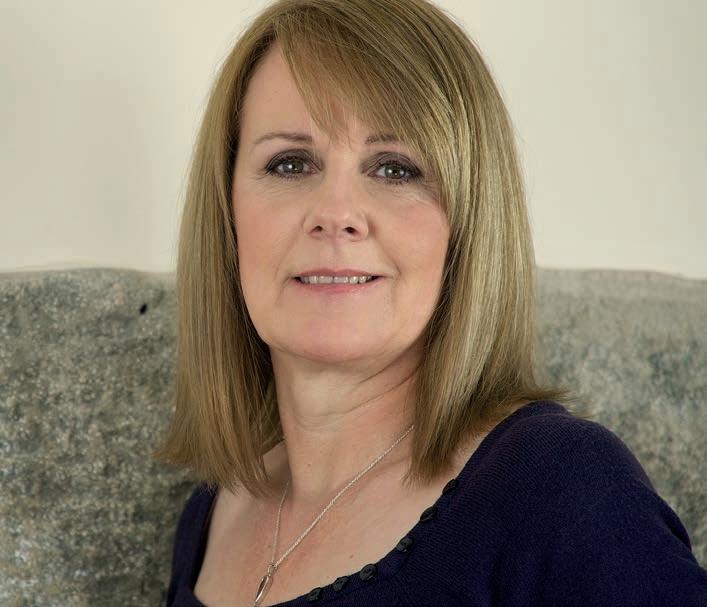
Refurbishment Management – A standard professional indemnity insurance policy does NOT cover this –Usually, a stand-alone policy, but it can be a named service within the PI policy. Often when quoted for cover, the agent will reject it because of the extra cost; a lot of sourcing agents and deal packagers that offer a ‘refurbishment management’ service don’t have cover.
Cybersecurity and Data Breach Protection – Where increasingly more data is held digitally, the risk to any business, for loss of data and to the data owner, is ever present. The sourcing
sector, when operating compliantly, holds as much sensitive data on clients as a solicitor, accountant or mortgage broker, in some instances, potentially more. If your data is lost due to an agent not holding it securely, you are at risk of being ‘cloned’, where potentially loans and credit cards are set up in your name, causing mayhem for many months.
For any business, insurance should be the cornerstone of risk management, whether protecting assets and employees or managing its risk liability.
If you understand the importance of insurance and select appropriate cover for your business and services, then you are not only safeguarding your company but also any clients that you work with.
For property investors, with the everincreasing number of sourcing agents being churned out by training courses, there has never been a better time to start having that difficult conversation with an agent, “…Do you have insurance to cover all the services that you will be providing me? I will need to see proof of all policies please…”
Tina Walsh, CEO – National Association of Professional Sourcing Agents (NAPSA) Ltd napsa.org.uk hello@napsa.org.uk




Our team have over two decades of experience in fire safety, helping to keep our clients compliant and on the right side of the law. Alongside protecting your tenant’s lives, we protect your greatest assets, ensuring that they are safe from fire hazards.
Our services include:
• Fire risk assessments (commercial and residential)
• Fire door inspection
• Fire safety compliance
• Cover the whole of the UK
Discover more about our service and keep your assets safe by going to www.soteriafireportection.co.uk
Contact our team for a free fire safety consultation by emailing enquiries@soteriafireprotection.co.uk


Unless you have access to unlimited wealth, there will come a point in your property journey where you run out of cash. For some people, this will be a few deals down the line. Others might be looking to buy their first project or to move on to something bigger, when the lack of cash becomes an issue.
At this point, most investors look for the solution in the form of an angel. Or, more specifically, an angel investor.
For the sake of clarity, an angel investor in this case, is someone who loans money in return for a set interest rate. Funding your deals using this type of finance allows you to work on larger projects, grow your portfolio quicker and is typically cheaper than other types of funding, such as bridging finance.
Over the past six years I’ve been investing in property, starting with buy-to-let (BTL) projects, flips and creative deals like assisted sales. From here, I’ve scaled, raising over £2.5 million in investor finance and purchasing larger projects, like a commercial to aparthotel conversion, on which I am currently working.

In this article, I share my advice on finding investors and raising private finance, alongside detailing the strategies and steps I have implemented in my property business, to make the process of finding and onboarding investors much easier.
You have probably heard the good old, ‘ask your friends and family for money,’ tip a thousand times before. Although the advice might sound generic, there is no better tip for finding cash, especially if it’s something you’re new to.
Now, you might not be from a wealthy family, but your parents don’t need to be millionaires for this to work for you. Really, raising big chunks of finance is only something you need when you’ve got a few projects under your belt and you’re moving onto something bigger, like conversions or new builds.
Before this, you should only need tens of thousands to complete a refurbishment or a house in multiple occupation (HMO) conversion, depending on its size. Big millionaire businesspeople are unlikely to be the sort of investors who are going to put £20,000-£50,000 into your project. ‘Small’
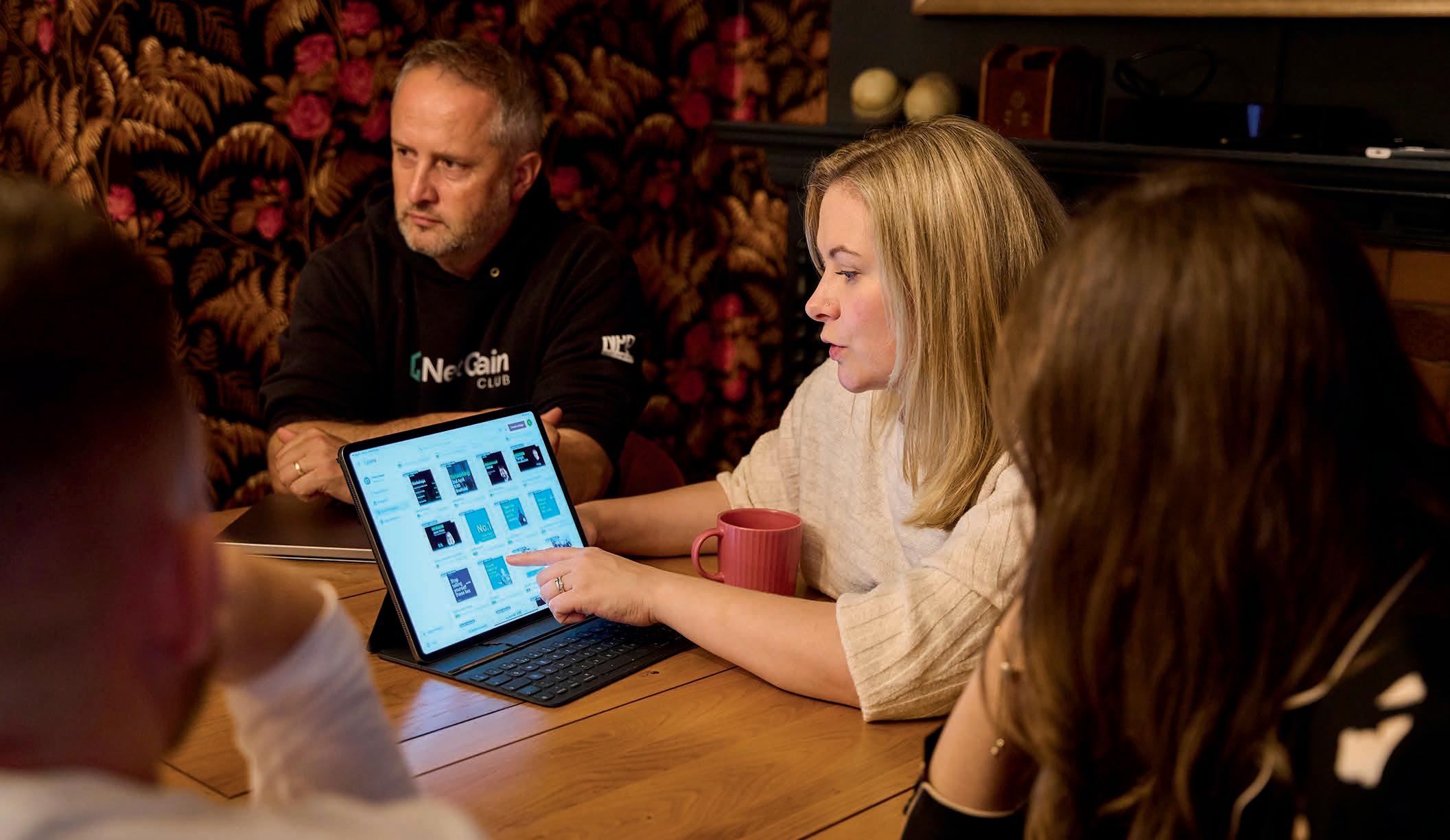
(and I mean small in terms of property) chunks like this will likely come from those close to you.
You might be thinking, “I don’t know anyone with money,” but be careful. Are you just assuming that those around you have no money? Are you sure that your aunty or a friend does not have £20,000 squirrelled away somewhere? You’d be surprised at where money comes from, or who has money that they’ve either stored up or inherited.
People in your network, like friends and family, already know, like and trust you. Being known, liked and trusted is the backbone of any relationship with a prospective investor. The people, who out of the blue on social media say, “I need to borrow £50,000,” are being unrealistic. Who’s going to lend money to a stranger? And, if they say they are, how do you know their intentions are legal (more on that later)?
The people who you have a trusting relationship with might be in your network currently, or they might be people from your past, like ex-colleagues or old managers. In the end, it’s all about relationships and if you don’t have any current or past relationships with people who are interested in investing in you, then you need to go out and form new ones.
If your friends and family are a ‘no-go’, then look at who else you have a relationship with. Look at your hobbies, for a starter. If you play golf, then can you talk to people at your club? They’ll already know you and you have something in common to start with. If you have young children, then think about talking to other parents when you’re picking the kids up from school. Again, you’ll be surprised who has money and where that money comes from.
Alongside this, look at business networking events. Especially invite-only events or higher-end ones.
I’ve personally gotten opportunities from commercial property events. There are people out there actively looking for investment opportunities, where they can invest money from their self-invested personal pension (SIPP) or small selfadministered schemes (SSAS) into larger projects. You’re more likely to find investors in these places, than you are from going to residential events for investors, where everyone else in the room is likely looking for the same thing.
Social media is a powerful tool, but it requires work and consistency to ensure people understand who you are, what you do and what you’re looking for. I once ran a campaign for an entire year, advertising that I was looking for ‘empty properties on your street’. I still had friends who didn’t tell
me they knew of one because they didn’t see my posts. Consistency is key, alongside telling absolutely everyone what you do. Sometimes you need to spell it out a little more!
Having built up my LinkedIn profile for years in my previous working career, I have found that LinkedIn returned the best results for finding genuine, high-net-worth individuals and wealthy business owners. If you’ve built up trust in a platform with your connections, it’s a great place to start.
This is the chicken and egg situation that’s often debated. What should you find first? The finance or the deal?
In my opinion, you should be looking for both at the same time. You need to be in a position that when you find a deal, you have your money at the ready. Most deals fall through because the purchaser has left finding finance till the last second.
The problem is, if you leave finding investment till the last moment, then you have a lot of pressure on your shoulders. You’ll look desperate, people will feel that when you speak with them and that will put people off.
Also, even if you have ten people who have said they’ll invest capital in one of your projects, you never know how many of them are serious, until they have to put their money where their mouth is. From my experience with mentees, when they’re starting out, as high as 80% of people who tell you they’re interested in investing, will often back out, telling you, “Now is not the right time.” Or they might want to see how you get along with your current project before deciding to invest in your next one. So, building your pipeline of investors is key, no matter what stage you’re at.
I must point out here, that I’m not approved by the Financial Conduct Authority (FCA) to provide advice, but it’s been a passion project of mine to understand the system and help to point people to the right places, to read the correct sections in the handbook.
From a business and legal standpoint, it’s not as simple as borrowing money and investing it into a deal. There are systems and processes that need to be put in place –so simply having money transferred directly into your account is a big ‘no-no’ from both the standpoint of the FCA and Anti Money Laundering (AML) regulations.
Before you take money from an investor, you need to onboard them. This benefits you for a few reasons:
Doing this the right way stops you from breaching FCA and AML regulations, You look more professional, which instantly builds trust,

You filter out investors who aren’t serious and just want a nosey at your deals.
How should your onboarding process look?
Before taking any money, you need to ensure that the person is suitable to invest into your project. This means that they have had the risks of the project adequately explained to them and they are in the right financial position to invest. Yes, they can make a return on their investment, but they also need to know that they could lose this money too. The advice given in the FCA guidebook is quite clear about how you can work with investors and tells you what you need to understand about suitability and risk requirements.
Don’t let the process of detailing risks put you off. Serious investors will appreciate the professionalism, which strengthens their trust. Ensure you are responsible when raising finance and look after your investors. If you do, then you can be sure they’ll sing your praises to other people in their network.
I would always request proof of funds from an investor early on in conversations. This proves they have access to the money they’re claiming they want to invest, which helps you to avoid any time wasters.
You also need to ask where this money has come from, as this will be a key part of the AML checking that your solicitor will undertake on your behalf. Anyone serious about investing in you will have no issues disclosing this information.
It’s not just about avoiding tyre-kickers. Legally, any funds that are used in the purchase of a property will have to be checked thoroughly by a solicitor, so the more you know about the process and what’s required, the smoother and quicker the transaction. It’s not as simple as checking that you’ve had funds in your account for the past three months, as many property training providers suggest – solicitors need to satisfy themselves on the source of that money, even if that means tracking the journey through several accounts.
There are a few FCA rules when it comes to finding investors on social media to be aware of that can be easy to miss, especially since you see people break these rules often.
Firstly, don’t use emotive words when describing your opportunity. For example, you can’t say that a project is a ‘fantastic deal’. Stick to facts and figures and avoid anything related to emotion or opinion. Even the word ‘investment’ is best to avoid, along with ‘return on investment (ROI)’ or ‘guaranteed’.
It is illegal to have a referral programme. Though you, like me, have probably had a LinkedIn message or two, from someone admitting that they’ll pay you if you introduce them to a prospective angel.
It’s okay if you are naturally referred via word of mouth. Word of mouth is extremely powerful, especially when it comes organically. But, if you’re paying people or incentivising them, then this is where the issues start.
Plus, let’s be realistic. No one is going to risk their reputation and the finances of their contacts, for a few hundred quid.
Be advised that some lenders don’t like refinancing projects that have been funded by angels. It comes down to AML regulations and if they’re unsure where your investor’s money has come from, then they might refuse to touch your deal.
You can overcome this by having your solicitor document where the funds have come from (which should be a part of your onboarding process) and by communicating with your finance broker early on in the deal. Don’t leave it till the last minute to tell your broker how the deal is funded, or you could be in for a nasty surprise.
People have their own interpretations of what can and cannot be done within the guidelines of the FCA. My advice is to read their policy yourself so you can make your own choices. If in doubt, consult with a solicitor and get them to clarify things for you.
I run a range of property networking events and communities across the UK, alongside my business partner, Mark Winship, who has written for Blue Bricks Magazine in the past. I welcome you to join us at one of them to say hello!
If you’d like to join an upcoming event, learn more about what I do, or get in touch to say you enjoyed the article, then you can get in touch using the details below.
emily@netgainclub.com

Speed and planning are the most important skills when it comes to new build development. Admittedly, this isn’t always easy for developers, especially if they’re caught planning delays, supply chain hold-ups or site lags.
But why are these so important? Well, because you never know what’s around the corner. What changes in the economy can give rise to material or build costs. WHAT events can cause a shortage or delays in supplies.
This was sharply demonstrated during the pandemic. And a site that our client was building in Lewisham, London, was at serious risk of going over budget. The project, which was the demolition of a petrol station to build 7 apartments with a commercial storefront, was planned and costed pre-pandemic. So, when the virus hit and prices skyrocketed, there was a fear that the original budget would be blown apart.
This is the story of Ladywell, and how, despite the odds, we worked with the client to deliver beautiful new housing on time and below budget.
Before we tell the story of Ladywell, it would be useful for you to know what my company, Procurement for House Builders (P4HB), does.
Like it says on the tin, we are a procurement company. We work with property developers, investors and homebuilders to find them the best possible prices and specifications for
the materials needed to complete their projects. From the groundworks to the last screw, we price, plan and deliver every element meticulously to meet our client’s build programs, saving them money whilst helping them build on time and to budget.
Now you know what we do, you’ll understand how we were able to help deliver Ladywell in what was an extremely challenging time.
It’s no secret that material costs skyrocketed during the pandemic, assuming you could get hold of materials in the first place! While this caused problems for all developers, the ones it hurt the most were the ones who had already broken ground. Imagine costing a project 6 months prior, to find that your original estimates have risen by 40%-50%! That’s enough to kill a project and put a company under.
Thankfully, construction workers were classed as ‘key workers’, which meant we could continue helping our clients. But still, price increases were painful.
Some items had risen in price by as much as 60%. These were hard times for the property industry, and it was make or break for many.
Before our client, David Grahame Construction, bought and demolished the site, it was an old, abandoned petrol station.
Our client got permission to build a commercial shopfront with 7 apartments above it. These were a mixture of four onebedroom apartments and three two-bedroom apartments.
As it was once a petrol station, a lot of remediation work was needed. This, mixed with planning, delayed the build start. So, while we planned costs and quoted the client before Covid, it wasn’t until November 2021 that the project started.
The original price our client had received from their original supply chain for materials was £1.8million. Our Challenge now was to get the materials to come in at this price whilst facing rapid price increases. P4HB consolidate all of our purchasing across a large number of clients, so we have aggregated ‘buying power’. This results in preferential supply and material rates, meaning that we can deliver better terms and supply arrangements for our clients.
Although the majority of our supply chain is UK-based, we also source globally, and we can leverage this whenever the specification or availability requires. We were able to utilise our supply chain effectively to get the overall materials supply to meet the original budget. What proved very difficult for our client standing alone is achievable through our expertise, buying power and collaborative planning.
Land Purchase Price: £900,000
Purchasing costs: £9,000
Build cost (pre-Covid estimate): £1,800,000
Delivered build cost: £1,600,000
Cost per sqft: £170
Total Cost: £2,509,000
GDV £5,800,000
The commercial storefront was then let to Sainsbury’s and development was refinanced by the client, allowing them to add the units to their portfolio. The whole project was completed in under a year with the site being finished in October 2022.
Although a key element of our service is the money that we save, the real value comes from the headaches and delays we remove and the project momentum we create.
Ultimately, we saved costs and lead times across the entire materials schedule, including the first and second fixes, flooring, glazing, curtain walling and internal finishes.
Because we managed the negotiation and purchasing, managed expectations effectively in the supply chain and consolidated deliveries to ensure minimum handling, the client was able to focus on what they’re great at; the build. Through our partnership, not only did we meet our pre-Covid quote, but we actually beat it! The figures are as follows:

Builders don’t want materials showing up late in the day. Because of our detailed planning in advance, open communications and collaboration, we are able to ensure that everything is delivered on time, on expectation and on the first drop.
Our project management expertise and competitive advantage have allowed clients to complete builds on time, grow their reputation and take on bigger projects. We see ourselves as our clients’ partners, not just a service provider.
If you are interested in learning more about what we do, or you want to discuss a current or upcoming project, then get in touch today using the details below.
procurement4housebuilders.com
hello@procurement4housebuilders.com
procurement4housebuilders
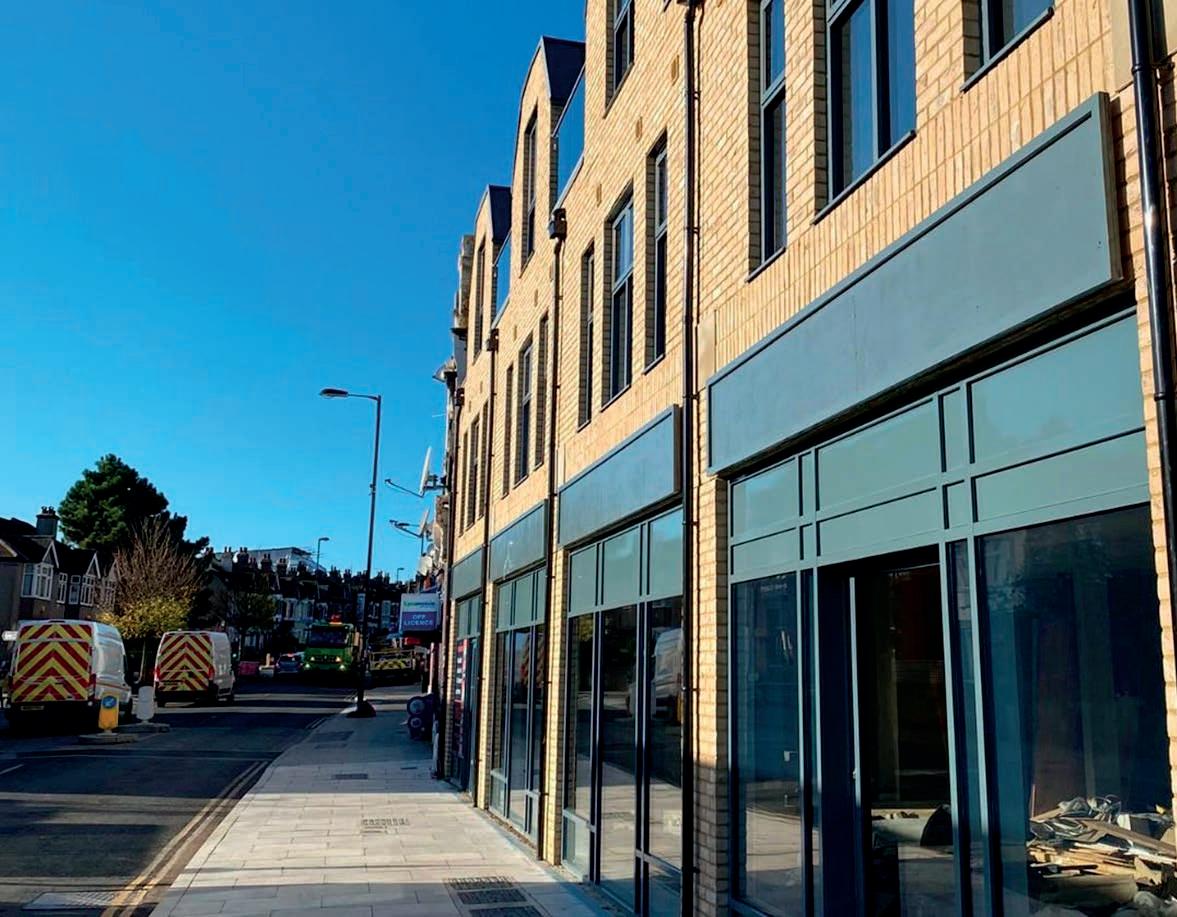

Multiple events in the UK. A fun, unique and informative community for established and aspiring property investors hosted by Mark Winship and Emily Smith.
Full event details can be found on our website: www.netgainclub.com

Property Investors North East is the go-to event for investors ‘up’t north’. Join a growing community of property folk and hear from industry experts every month.
Location: The Royal Station Hotel, Newcastle Upon Tyne Time: 18:30
Date: The first Thursday of every month
Host email: peter@aqualettings.co.uk

A vibrant networking group in Morecambe hosted by Katie Banks and Peter Baker.
Location: The Morecambe Hotel, Morecambe Time: 18:30
Date: Last Wednesday of the month
Booking link: www.eventbrite.co.uk/o/ bay-property-network-27104233761

One of the most vibrant and entertaining events in the North East, The Property Thing is hosted by long-established property investors Anthony Boyce and Paul Million.
Location: Blackwell Grange Hotel, Darlington Time: 18:30
Date: Second Thursday of every month
Link: The Property Thing Group (Facebook)
Host email: anthony@therocketgroup.co.uk

A friendly, interactive, supportive and positive space where you can learn more about property investing and business know-how. Whether you are a property newbie, an experienced property investor, landlord, or property service provider, you will be very welcome.
Location: 589 Southmead Road Filton BS34 7RG
For details on future event dates, contact the host: wendy@solutionproperty.co.uk
Food and a few drinks with property folk in Leeds City Centre. People of all experience levels are welcome.
This is a quarterly event. Contact me for more information on dates and times.
Host email: carolinetolman@outlook.com


An invite-only networking event for director-level property professionals. More information on how to join can be found on the website, or by emailing hi@bluebricksmagazine.com to request an invite.
Time: 13:30-15:30
Website: propertycatalystclub.co.uk
Our very own networking event with a community of highly experienced property investors and industry experts who travel across the UK to speak for us. Free for members of Blue Bricks Magazine.
Location: The Banyan, City Square, Leeds (you can also live stream this event via Zoom). Time: 18:30
Link: Check out ‘networking’ on our website bluebricksmagazine.com
Host email: hi@bluebricksmagazine.com
